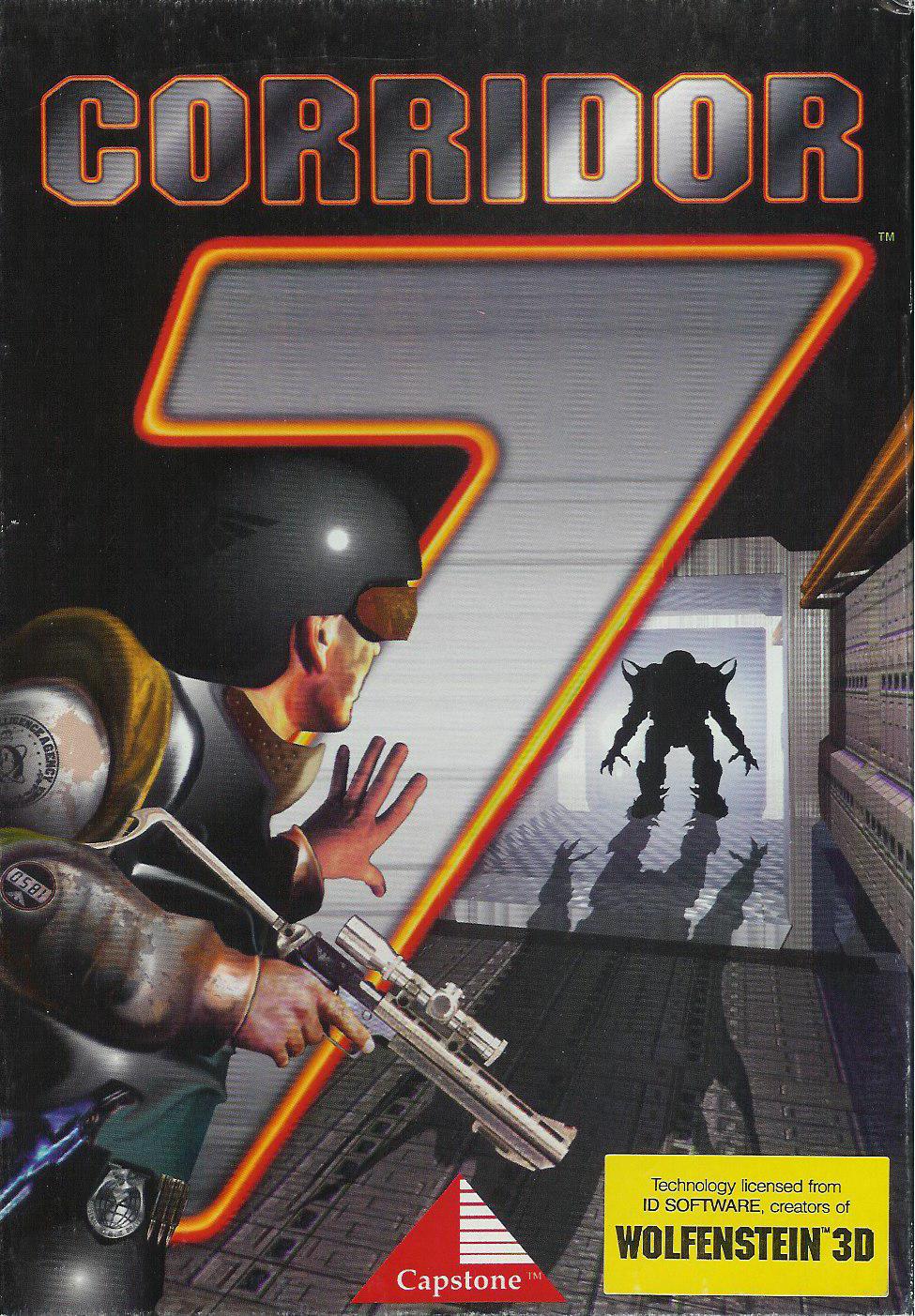
Corridor 7 was released by Capstone in March 1994. This month marks 23 years. Wow, if that doesn’t make me feel old. I vividly remember buying this game in the summer of ’94 and loving the crap out of it. It used the same engine as id Software’s Wolfenstein 3D. Unfortunately for Corridor 7, Doom came out just three months prior and blew everyone’s mind. Suddenly, the Wolfenstein engine was looking a bit archaic. Corridor 7 was a day late and a dollar short. But that doesn’t mean it’s a terrible game. I liked it a lot as a kid and it definitely has some charm to it. Let’s take a stroll down memory lane.
On a side note, be sure not to miss the interview I conducted with Corridor 7 programmer, Les Bird, toward the bottom of this review. Thanks, Les!
IT ALL BEGAN IN 1992…
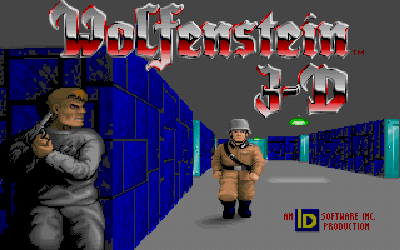
Often considered the grandfather of the genre, Wolfenstein 3D made a big splash upon its arrival back in May of 1992. Mowing down Nazi soldiers and zombies left and right was a formula for success. Sure, there were other first person shooters that came before, but none put the genre on the map quite like this one.
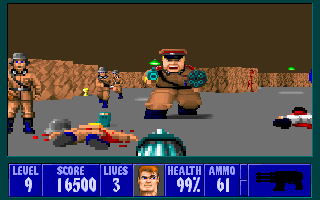
Wolfenstein left a lasting impression to say the very least. Few games could match the sheer intensity of gunning down a room full of Nazi guards. It was an adrenaline rush like none other. id Software struck lightning in a bottle, but this proved to be only a stepping stone…
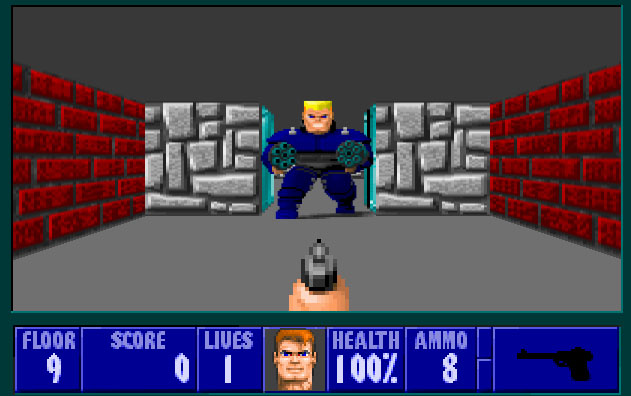
As great as Wolfenstein 3D was at the time, it was just the beginning…
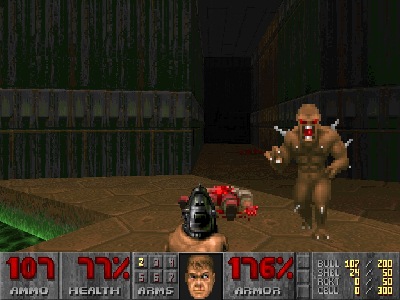
Released December 1993, Doom took players on a wild ride through the shores of Hell. It was essentially to the first person shooter genre as Street Fighter II was to the fighting game. And just like Street Fighter II, when a game creates such a stir, rival companies come out of the woodwork to throw their name in the hat eager for their own slice of the pie. The early-mid ’90s was flooded with Street Fighter II and Doom clones. Most were rather uninspired, but a few rose above the pack. Whatever the case may be, one thing was for sure… we had more than our fair share of choices.
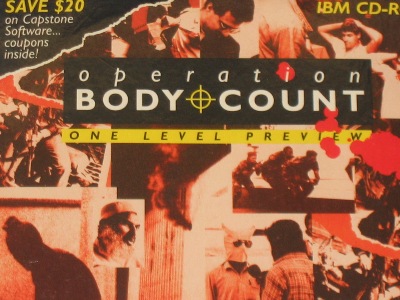
One day in early 1994 I made my weekly voyage to Software Etc. at the local mall. Typically, I would stare at all the cool SNES games I could never own. But on this particular day a little CD game caught my eye. It was a one level preview of a new Wolfenstein clone called Operation Body Count.
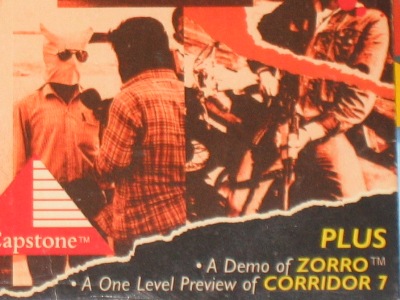
But what attracted me to this one level preview was Corridor 7: Alien Invasion. The back of the package featured a small picture of a massive purple alien stalking you in a creepy decaying corridor. It blew my 10 year old mind and looked exactly like the kind of game I would have made myself! I convinced my mom to buy it and the rest is history.
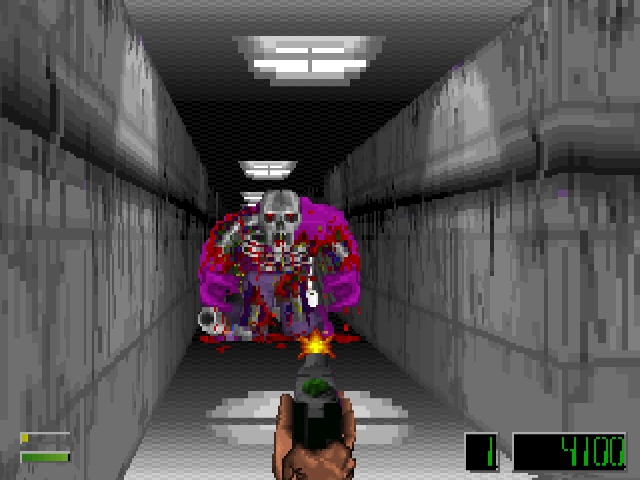
I played that one level preview of Corridor 7 probably 500 times. I absolutely loved it. My dad eventually bought me a copy of the full game later that summer at this little mom and pop shop of all places. They had it at a discounted price of $20 and my old man bit. I studied the manual the whole 20 minute car ride home, reading about the weapons and monsters until I damn near memorized it. Even back then, I was obsessed with spreading the word on obscure games. Corridor 7 became that under the radar title that I championed as a 10 year old kid. I told all my friends about it. I even called it C7… it was my attempt to sound cool but obviously to little avail.
THE STORY GOES…
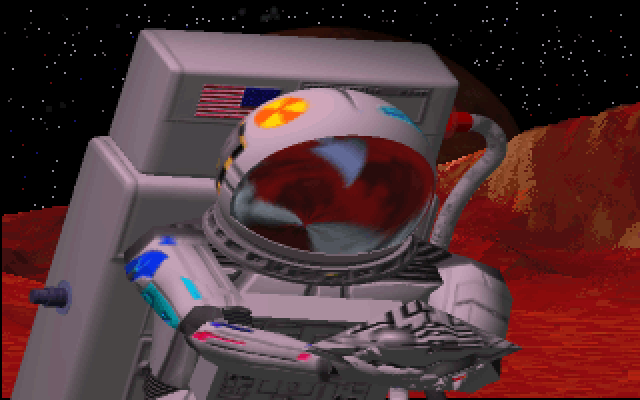
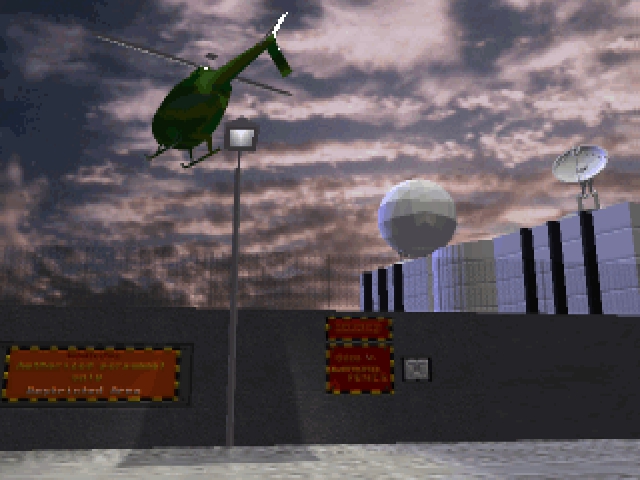
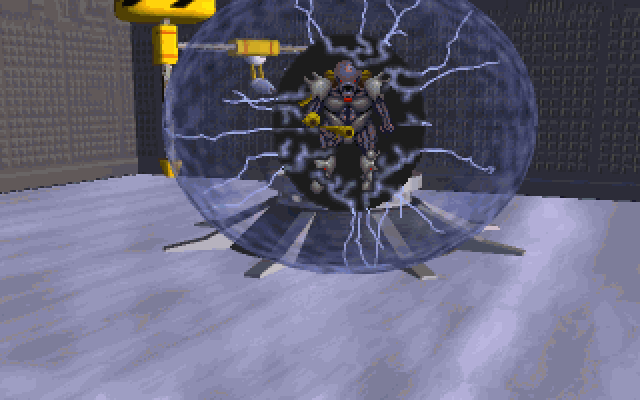
THE ALIENS
 Animated Probes are very efficient and very fast. Most of the probes respond to sound, but some are set to ambush you when you enter a room or corridor. Luckily, these probes don’t do a lot of damage and do not have a lot of health.
Animated Probes are very efficient and very fast. Most of the probes respond to sound, but some are set to ambush you when you enter a room or corridor. Luckily, these probes don’t do a lot of damage and do not have a lot of health.
 This alien is primarily a sentry, used to alert other aliens to your presence. Ailoprobes move slowly, do little damage, and by themselves are not much of a threat. Ailoprobes usually travel in packs, however, and can bring other aliens swarming in on you.
This alien is primarily a sentry, used to alert other aliens to your presence. Ailoprobes move slowly, do little damage, and by themselves are not much of a threat. Ailoprobes usually travel in packs, however, and can bring other aliens swarming in on you.
 These little devils travel in packs and attack quickly. Although Rodexes don’t do a lot of damage, if they surprise you, they can hurt you plenty. Listen for their unique squeal when they enter a room. You can punch holes in them from a distance with the M-343 or the Alien Assault Cannon. More of a nuisance than a threat. The big boys are soon to come…
These little devils travel in packs and attack quickly. Although Rodexes don’t do a lot of damage, if they surprise you, they can hurt you plenty. Listen for their unique squeal when they enter a room. You can punch holes in them from a distance with the M-343 or the Alien Assault Cannon. More of a nuisance than a threat. The big boys are soon to come…
 Bandors disguise themselves as common everyday objects such as chairs, barrels, file cabinets, potted plants and so forth. They remain in these forms until they can surprise you, usually from behind. Bandors carry heavy weapons and can inflict a lot of damage. Stay alert and listen for their morphing sound. You can put a few holes in the Bandors before they finish morphing. Bandors are extremely loyal to their own kind. If you kill a Bandor, others in the area generally rush to the scene.
Bandors disguise themselves as common everyday objects such as chairs, barrels, file cabinets, potted plants and so forth. They remain in these forms until they can surprise you, usually from behind. Bandors carry heavy weapons and can inflict a lot of damage. Stay alert and listen for their morphing sound. You can put a few holes in the Bandors before they finish morphing. Bandors are extremely loyal to their own kind. If you kill a Bandor, others in the area generally rush to the scene.
 Nerraws roam the alien levels and don’t appear until level 31 in the CD-ROM version. Although he looks harmless enough, he can kill the toughest marine in only a few seconds. Shoot first and make sure the little bastard stays down.
Nerraws roam the alien levels and don’t appear until level 31 in the CD-ROM version. Although he looks harmless enough, he can kill the toughest marine in only a few seconds. Shoot first and make sure the little bastard stays down.
 Semaj look like puddles of purplish slime, and they probably are. These creatures slink around the alien levels, waiting to grab your legs while you wage war against the other aliens. These aliens do not have any weapons, but they do have nasty sets of teeth that tear through the thickest body armor. Don’t let one slither up to you while you waste his buddies.
Semaj look like puddles of purplish slime, and they probably are. These creatures slink around the alien levels, waiting to grab your legs while you wage war against the other aliens. These aliens do not have any weapons, but they do have nasty sets of teeth that tear through the thickest body armor. Don’t let one slither up to you while you waste his buddies.
These ugly creatures are the main guards of the alien levels. Eitaks are well armed and can do a bit of damage, especially when you encounter them in numbers. These aliens are well enough armored to shrug off a few rounds, but sustained fire kills them easily. Try not to fight Eitaks in closed areas; they are a good shot and generally pour into the area to help their own.
 These aliens are the main technicians in charge of making the atmosphere alien-compatible. The Tenaj generally work alone but can be found in pairs. They’re smart, quick and likely to ambush an unsuspecting Marine. Although they represent a formidable threat, they are not heavily armored and are likely to turn their backs on you. Use the M-343 or Alien Assault Cannon to blow a few holes in them and pick up any charge packs that they drop.
These aliens are the main technicians in charge of making the atmosphere alien-compatible. The Tenaj generally work alone but can be found in pairs. They’re smart, quick and likely to ambush an unsuspecting Marine. Although they represent a formidable threat, they are not heavily armored and are likely to turn their backs on you. Use the M-343 or Alien Assault Cannon to blow a few holes in them and pick up any charge packs that they drop.
 These aliens can remain invisible until they fire their weapons. Enirams use this skill to sneak up on their prey and launch an attack. Enirams are not heavily armored. If you suspect that Enirams are in the vicinity, use the infrared mode of your visor to locate and track them. If you lose sight of an Eniram, use the proximity map.
These aliens can remain invisible until they fire their weapons. Enirams use this skill to sneak up on their prey and launch an attack. Enirams are not heavily armored. If you suspect that Enirams are in the vicinity, use the infrared mode of your visor to locate and track them. If you lose sight of an Eniram, use the proximity map.
 Otrebors are the main technicians that are working to convert Delta Base to an alien-inhabitable environment. These aliens generally travel alone, but they pack quite a punch and can be very deadly. An Otrebor has an evil laugh, but you usually will hear (and feel) its blaster first.
Otrebors are the main technicians that are working to convert Delta Base to an alien-inhabitable environment. These aliens generally travel alone, but they pack quite a punch and can be very deadly. An Otrebor has an evil laugh, but you usually will hear (and feel) its blaster first.
 Ttocs are brute force warriors. These aliens are not very bright, however, and they do not move very fast. Ttocs are my personal favorite. Not only do they look intimidating and exactly what I picture a barbaric alien to resemble, but their death animation is simply the best. Their skin melts, leaving a green poo all over their bones. The sound effect is spot on and it’s very satisfying to kill these bastards. Silly note: as a kid I surmised that Ttocs secretly stood for “The Terminators Of Corridor Seven.” Yeah, I was weird… [Was? -Ed.]
Ttocs are brute force warriors. These aliens are not very bright, however, and they do not move very fast. Ttocs are my personal favorite. Not only do they look intimidating and exactly what I picture a barbaric alien to resemble, but their death animation is simply the best. Their skin melts, leaving a green poo all over their bones. The sound effect is spot on and it’s very satisfying to kill these bastards. Silly note: as a kid I surmised that Ttocs secretly stood for “The Terminators Of Corridor Seven.” Yeah, I was weird… [Was? -Ed.]
 These heavily armored aliens are used primarily to guard key alien equipment and areas. You can hear a Mechanical Warrior from far away. When you hear the booming footsteps, check your Proximity Map. This alien is best handled from a distance or with a few well placed mines. Be sure to pry the Dual Blaster out of his cold dead grip.
These heavily armored aliens are used primarily to guard key alien equipment and areas. You can hear a Mechanical Warrior from far away. When you hear the booming footsteps, check your Proximity Map. This alien is best handled from a distance or with a few well placed mines. Be sure to pry the Dual Blaster out of his cold dead grip.
 Eniram bosses are of the same stock as the standard Enirams but are more solidly built and better armed. These aliens cannot turn invisible. Thank goodness for small favors.
Eniram bosses are of the same stock as the standard Enirams but are more solidly built and better armed. These aliens cannot turn invisible. Thank goodness for small favors.
 You can find Tymoks on various levels, supervising other aliens’ work. Tymoks are armed with Plasma Rifles and can burn you into a puddle of goo very quickly. These aliens also are fairly quick and are likely to dodge your fire. Fortunately they work alone. Before taking on a Tymok, eliminate all other threats in the area. You don’t want an Animated Probe chewing up your backside while you concentrate on the Tymok!
You can find Tymoks on various levels, supervising other aliens’ work. Tymoks are armed with Plasma Rifles and can burn you into a puddle of goo very quickly. These aliens also are fairly quick and are likely to dodge your fire. Fortunately they work alone. Before taking on a Tymok, eliminate all other threats in the area. You don’t want an Animated Probe chewing up your backside while you concentrate on the Tymok!

 This alien is the last boss that you will face in the game. Tebazile is heavily armored and carries a powerful weapon. To top it off, you have to kill him five times! When you first see Tebazile, he is in his natural form. When he takes enough damage, he morphs into the following aliens: Eniram boss, Tymok, Solrac, and back into himself. He appears only in the CD-ROM version.
This alien is the last boss that you will face in the game. Tebazile is heavily armored and carries a powerful weapon. To top it off, you have to kill him five times! When you first see Tebazile, he is in his natural form. When he takes enough damage, he morphs into the following aliens: Eniram boss, Tymok, Solrac, and back into himself. He appears only in the CD-ROM version.
 Solrac is the alien leading the invasion of Earth. You probably will see him several times during the game, however, as his presence invades your thoughts. Solrac carries no weapon but he fires a deadly energy burst from his eyes. Alien weapons do the most damage to Solrac, but your M-343 will do in a pinch.
Solrac is the alien leading the invasion of Earth. You probably will see him several times during the game, however, as his presence invades your thoughts. Solrac carries no weapon but he fires a deadly energy burst from his eyes. Alien weapons do the most damage to Solrac, but your M-343 will do in a pinch.
THE WEAPONS
 This weapon emits an electrical charge of lethal force. The taser is self powered, requiring no ammo. I always thought it was pretty cool how your weakest weapon was a “gun” of sorts, as opposed to a knife or your fist.
This weapon emits an electrical charge of lethal force. The taser is self powered, requiring no ammo. I always thought it was pretty cool how your weakest weapon was a “gun” of sorts, as opposed to a knife or your fist.
 The M-24 Close Assault Weapon is the standard weapon of today’s Marine Corps. When the trigger is held down, it delivers a lot of firepower in a very short time and is effective against most standard alien foes. For the larger alien threats, however, you better have something with a bit more firepower. Compared to other starting guns within the genre, the M-24 “CAW” is the best of its ilk, thanks to its rapid fire.
The M-24 Close Assault Weapon is the standard weapon of today’s Marine Corps. When the trigger is held down, it delivers a lot of firepower in a very short time and is effective against most standard alien foes. For the larger alien threats, however, you better have something with a bit more firepower. Compared to other starting guns within the genre, the M-24 “CAW” is the best of its ilk, thanks to its rapid fire.
 This weapon is the latest incarnation of the standard shotgun that has been in service for hundreds of years. Deadly at close range, the weapon loses effectiveness at long range and is slow to deliver multiple shots. The shotgun is available only in the CD-ROM version. It was an attempt to copy Doom‘s popular shotgun, but this one is far less memorable (and useful).
This weapon is the latest incarnation of the standard shotgun that has been in service for hundreds of years. Deadly at close range, the weapon loses effectiveness at long range and is slow to deliver multiple shots. The shotgun is available only in the CD-ROM version. It was an attempt to copy Doom‘s popular shotgun, but this one is far less memorable (and useful).
 The M-343 can take out most of the lesser aliens in one shot and is effective at long range. Keep the trigger down when you hose down the larger threats; the automatic fire makes mince meat of most aliens in no time at all. This is easily one of my favorite guns in the entire genre. Not only is it powerful, but it’s fast firing and looks totally badass.
The M-343 can take out most of the lesser aliens in one shot and is effective at long range. Keep the trigger down when you hose down the larger threats; the automatic fire makes mince meat of most aliens in no time at all. This is easily one of my favorite guns in the entire genre. Not only is it powerful, but it’s fast firing and looks totally badass.
 One thing I’ve always dug a lot about Corridor 7 is the fact that there are four human guns and four alien guns (complete with its own special alien ammo). It makes the alien guns feel extra powerful, although in practice it’s hard to beat the ever reliable M-343. The Dual Blaster is the main weapon of the alien military. It spews a deadly stream of energy.
One thing I’ve always dug a lot about Corridor 7 is the fact that there are four human guns and four alien guns (complete with its own special alien ammo). It makes the alien guns feel extra powerful, although in practice it’s hard to beat the ever reliable M-343. The Dual Blaster is the main weapon of the alien military. It spews a deadly stream of energy.
 You loved the rocket launcher from Doom, eh? Well then, the Alien Plasma Rifle is the weapon of destruction for you. It fires balls of plasma that explodes upon impact. I love the green little scope attached to the rifle; it makes it look really badass!
You loved the rocket launcher from Doom, eh? Well then, the Alien Plasma Rifle is the weapon of destruction for you. It fires balls of plasma that explodes upon impact. I love the green little scope attached to the rifle; it makes it look really badass!
 Find the Dual Blaster to be outclassed by the M-343? Then you might want to check out the Alien Assault Canon. Available only in the CD-ROM edition, it’s basically an enhanced version of the Dual Blaster. It’s faster, stronger and far deadlier.
Find the Dual Blaster to be outclassed by the M-343? Then you might want to check out the Alien Assault Canon. Available only in the CD-ROM edition, it’s basically an enhanced version of the Dual Blaster. It’s faster, stronger and far deadlier.
 AKA the DVG (Darth Vader Gun), you know any weapon named the Alien Disintegrator must be pretty damn powerful. This is essentially the BFG of the Corridor 7 universe. Available only on the CD-ROM edition, this weapon of mass destruction can bore a hole through most alien hides.
AKA the DVG (Darth Vader Gun), you know any weapon named the Alien Disintegrator must be pretty damn powerful. This is essentially the BFG of the Corridor 7 universe. Available only on the CD-ROM edition, this weapon of mass destruction can bore a hole through most alien hides.
 Mines add an extra layer of depth and strategy to the “mindless shooting.” Once picked up, you can drop a mine anywhere on a stage. It stays there until someone, or something, comes near it. Then KA-BOOM!
Mines add an extra layer of depth and strategy to the “mindless shooting.” Once picked up, you can drop a mine anywhere on a stage. It stays there until someone, or something, comes near it. Then KA-BOOM!
ODDS AND ENDS
 One of the cool things about Corridor 7 was how they placed the medic packs throughout the levels. In Wolfenstein 3D and Doom such packs were placed out in the wide open. But in Corridor 7, medic packs are housed in special dispensers. This eliminates the potential of accidentally grabbing one in the heat of the moment.
One of the cool things about Corridor 7 was how they placed the medic packs throughout the levels. In Wolfenstein 3D and Doom such packs were placed out in the wide open. But in Corridor 7, medic packs are housed in special dispensers. This eliminates the potential of accidentally grabbing one in the heat of the moment.
 Weapon ammo is handled in a similar fashion. They too are housed in futuristic dispensers. I dig the sound it makes whenever you claim the bullets. I can still hear that sound to this day…
Weapon ammo is handled in a similar fashion. They too are housed in futuristic dispensers. I dig the sound it makes whenever you claim the bullets. I can still hear that sound to this day…

 Locked doors are a staple in first person shooters. Color keys were all the rage back in the ’90s, but once again Capstone tweaked things a little bit here. Each level contains various computer terminals. Many are false alarms. When you activate one, you’ll either earn access to blue security doors, red ones or get the dreaded false alarm “INTRUDER ALERT!!” These intruder alerts will alert nearby aliens of your location. This was just another cool feature of Corridor 7 that I feel has always flew under the radar. Yes, it’s a blatant Wolfenstein 3D clone in many ways but it wasn’t a completely heartless effort.
Locked doors are a staple in first person shooters. Color keys were all the rage back in the ’90s, but once again Capstone tweaked things a little bit here. Each level contains various computer terminals. Many are false alarms. When you activate one, you’ll either earn access to blue security doors, red ones or get the dreaded false alarm “INTRUDER ALERT!!” These intruder alerts will alert nearby aliens of your location. This was just another cool feature of Corridor 7 that I feel has always flew under the radar. Yes, it’s a blatant Wolfenstein 3D clone in many ways but it wasn’t a completely heartless effort.
 Teleporters are found in the 10 final alien levels in the CD-ROM version only. As you would expect, they take you from one teleporter to another. I like the flashing stars. Always thought that added a nice classy little touch to it.
Teleporters are found in the 10 final alien levels in the CD-ROM version only. As you would expect, they take you from one teleporter to another. I like the flashing stars. Always thought that added a nice classy little touch to it.
 Because this game takes place in the far flung future of 2012, experimental reviving chambers for non-mortal wounds are available for usage. A Health Chamber can restore up to 100% of your health depending on the energy level remaining in the chamber before use. When I was a kid I always loved how the voice over would go “HEALTH CHAMBER ACTIVATED!” as you spin 180 degrees. There was something very cool about that.
Because this game takes place in the far flung future of 2012, experimental reviving chambers for non-mortal wounds are available for usage. A Health Chamber can restore up to 100% of your health depending on the energy level remaining in the chamber before use. When I was a kid I always loved how the voice over would go “HEALTH CHAMBER ACTIVATED!” as you spin 180 degrees. There was something very cool about that.
 This almighty blue ball grants you temporary invulnerability. But keep in mind — whenever you see one of these bad boys — it usually signals that you’re about to encounter a rather aggressive skirmish with one of the tougher aliens, if not a pack of them. But even worse than that, the screen goes into a mad flicker that just might send you into an epileptic seizure.
This almighty blue ball grants you temporary invulnerability. But keep in mind — whenever you see one of these bad boys — it usually signals that you’re about to encounter a rather aggressive skirmish with one of the tougher aliens, if not a pack of them. But even worse than that, the screen goes into a mad flicker that just might send you into an epileptic seizure.
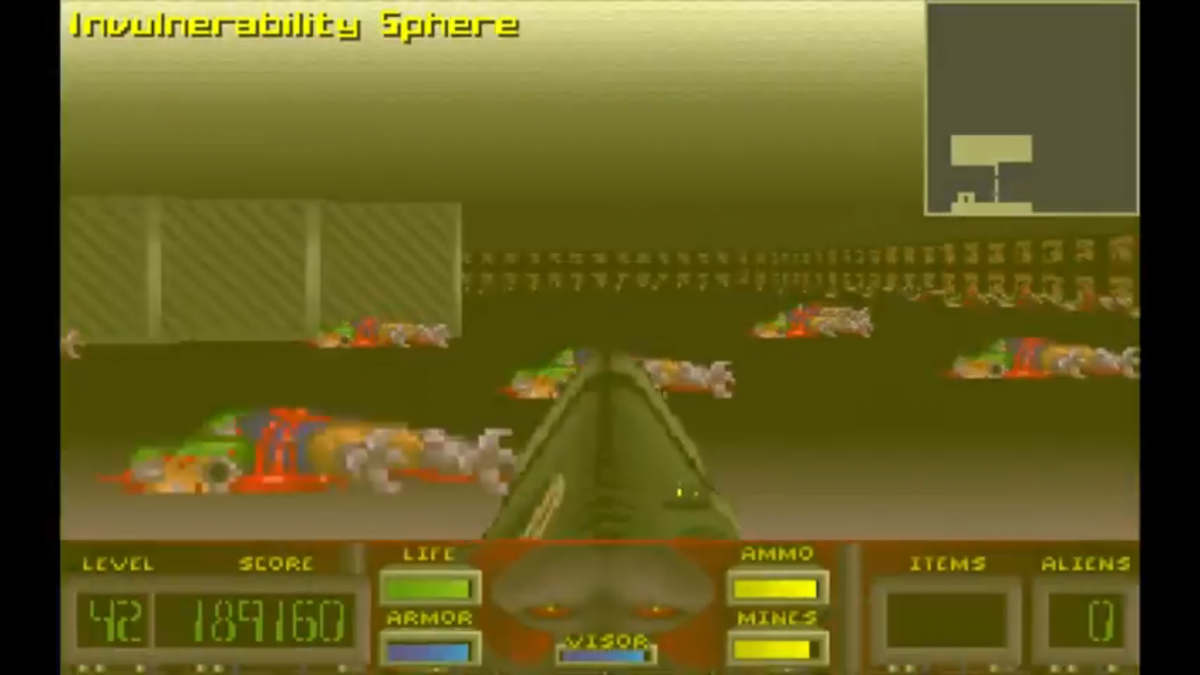
CORRIDOR 7 MEMORIES
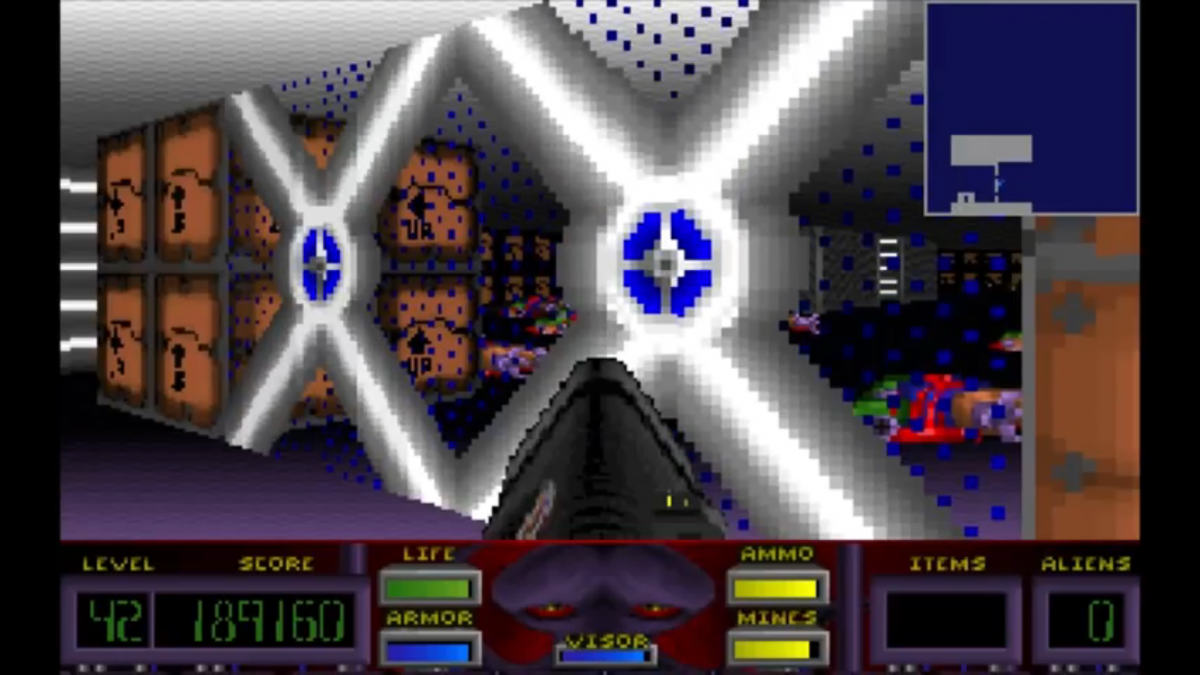
There weren’t many games I was more excited to play than the CD-ROM version of Corridor 7. I played the one level preview to death in early 1994. My dad bought me the full game later that summer. Right away I noticed some of the walls had windows and see through fences. There’s an inexplicable charm to it. Gave the game sort of this quirky look and feel.
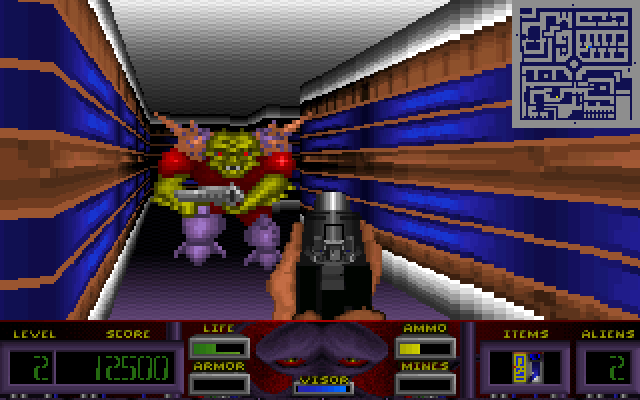
Although I absolutely ate up Doom, I’ve always preferred aliens over demons. Doom is undoubtedly the superior game (it’s not even close), but I actually like the enemy roster of Corridor 7 more. I love the idea of clearing corridors and hallways of alien scum. It truly felt like you were tasked with wiping out the entire alien race.
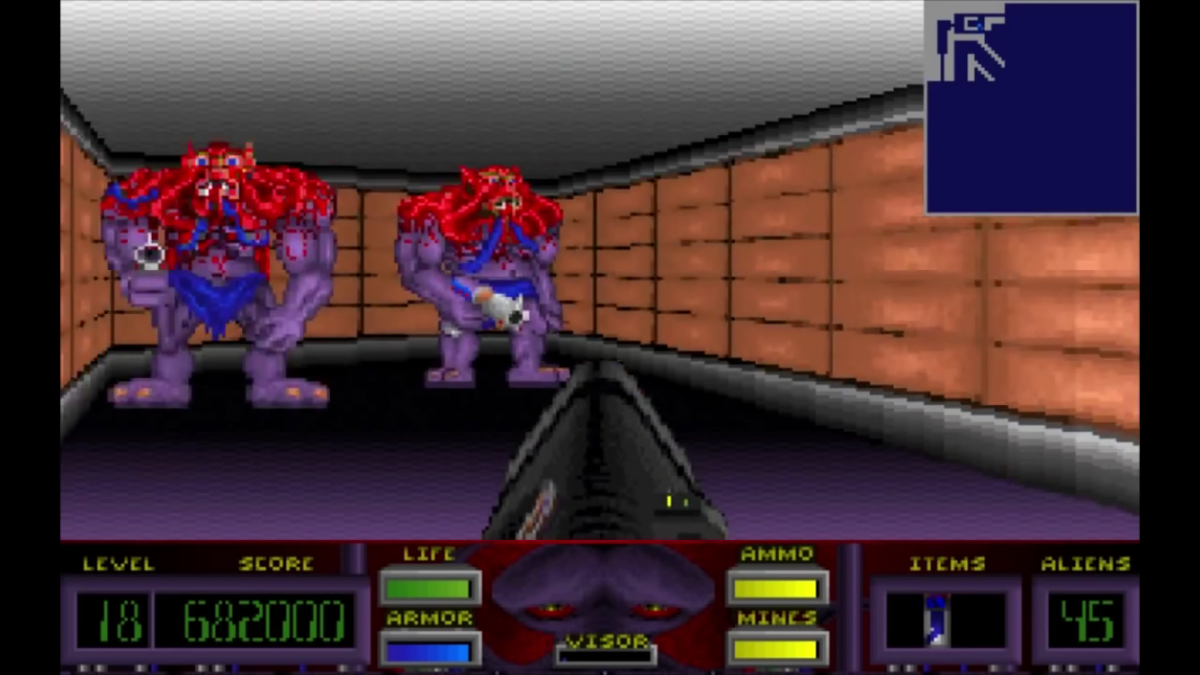
There are a lot of cool looking designs in this game, but my favorite was by far the Ttocs. I love their combination of red and purple. And they look like alien trolls on steroids. I loved them so much as a kid that I even came up with an acronym for them: The Terminators Of Corridor Seven. TTOCS. The funny things we did as kids, eh?
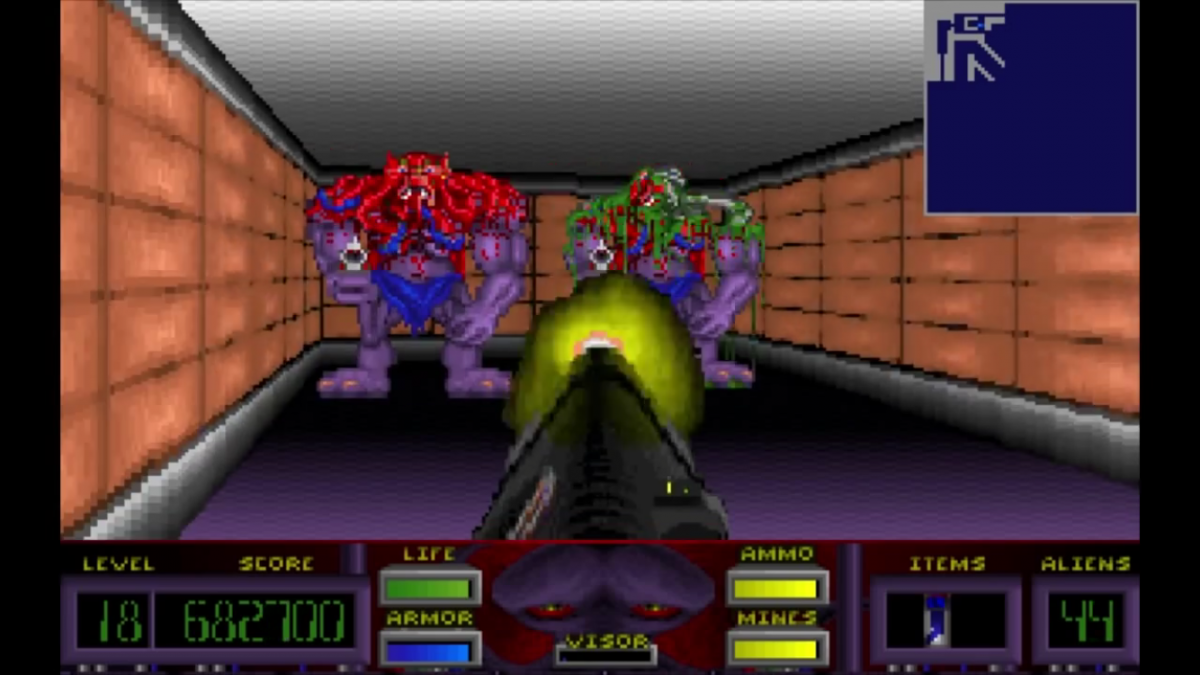
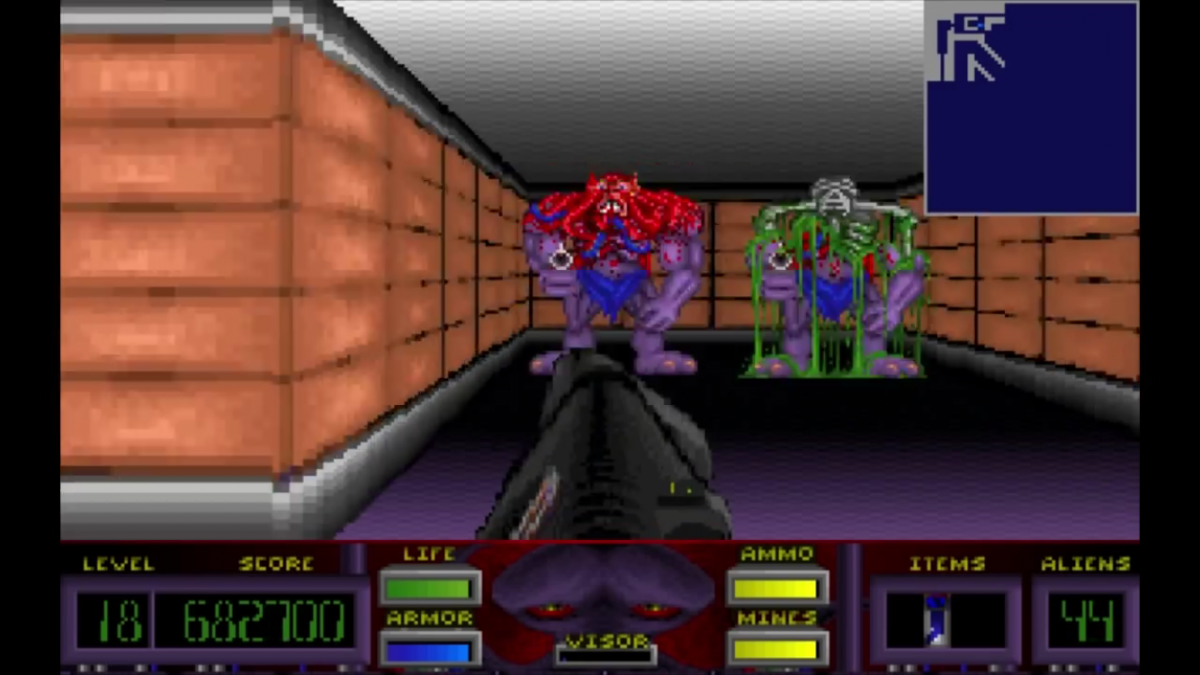
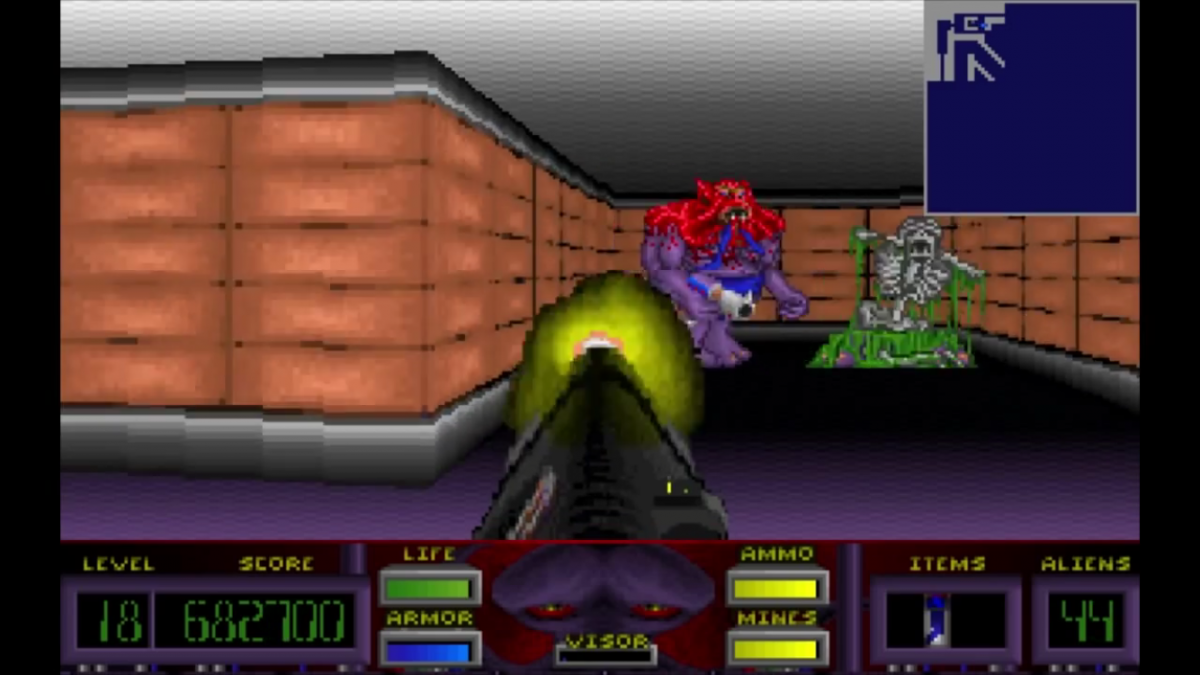
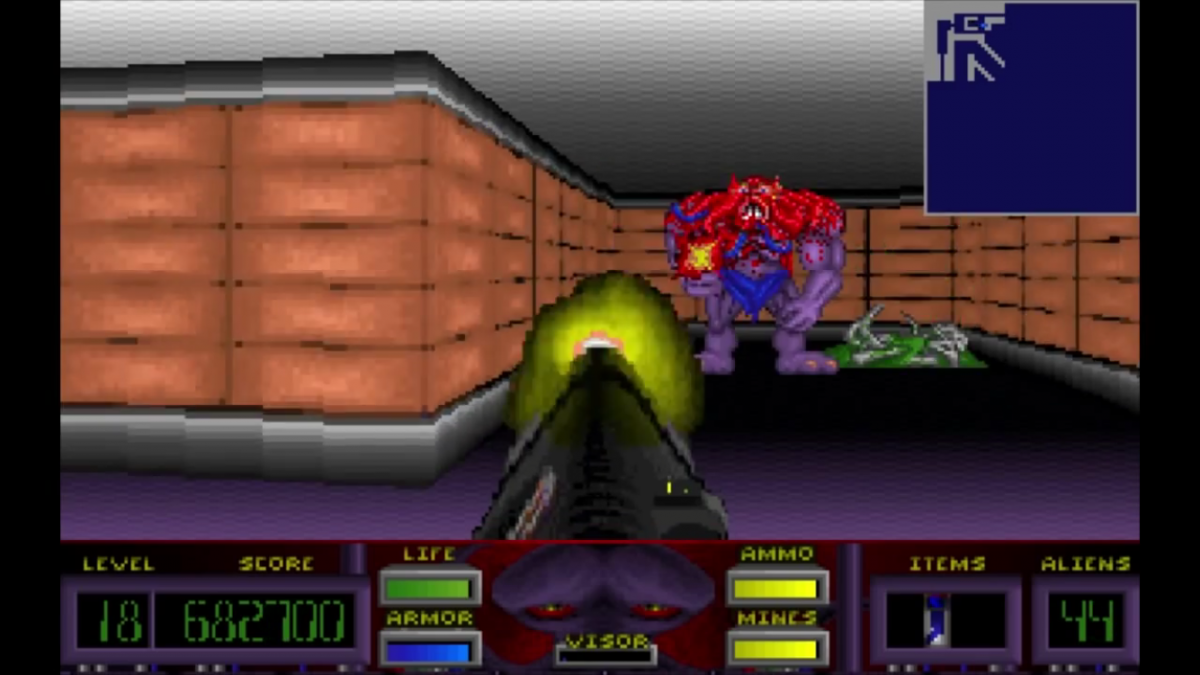
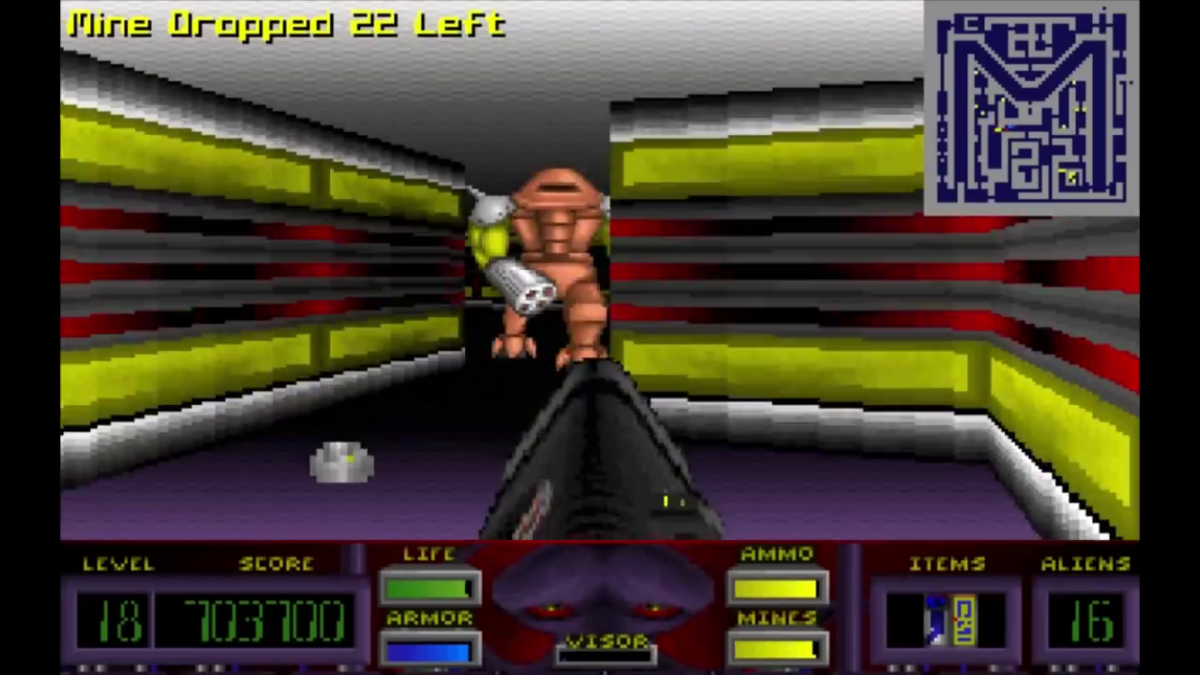
Indeed he was. You can hear his thunderous footsteps in the distance, which was incredibly ingenious. The first time I heard it I was like “Oh hell no!” Whatever lurked behind that corner was massive and deadly…
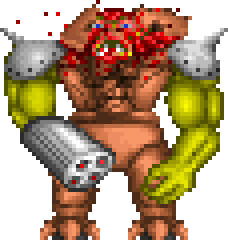
Interestingly enough, when the Mechanical Warrior dies, you can see what appears to be a variant of the Ttocs inside. As a kid I theorized that the Ttocs battled for supremacy amongst themselves. The ones who won out got to don the scorpion-like suit. The bliss of being a kid, eh?
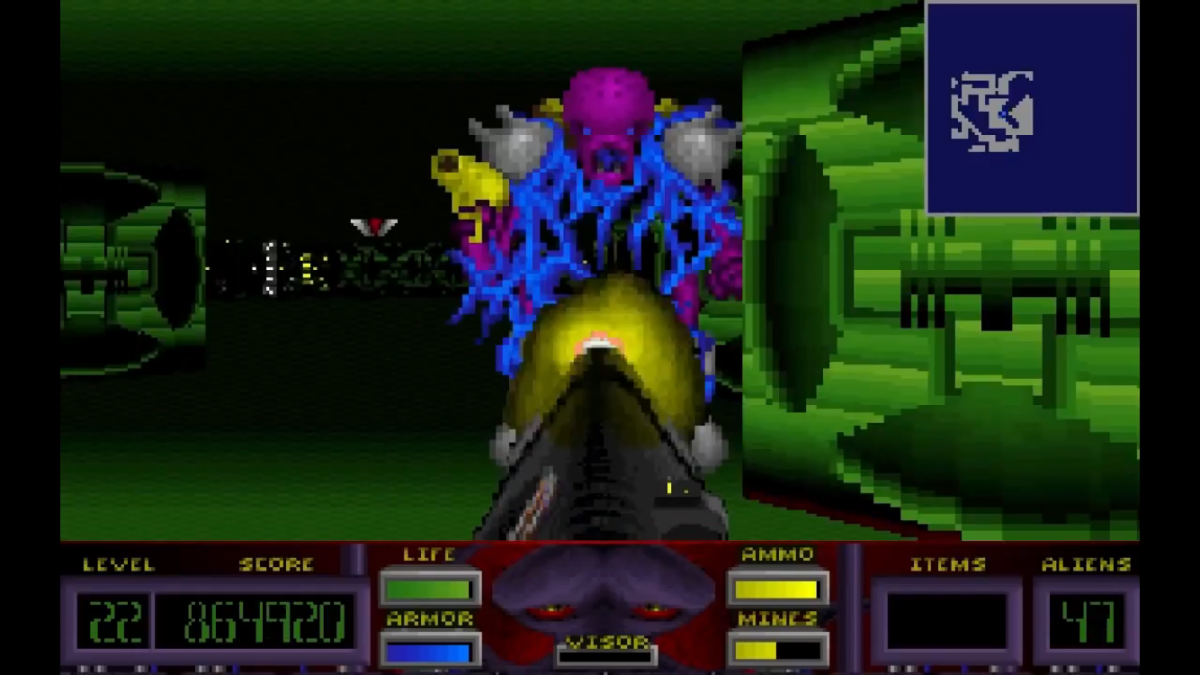
Corridor 7 had some sick alien sound effects and death animations. It made killing the aliens a blast, pardon the pun. The game is rather underrated particularly in those areas.
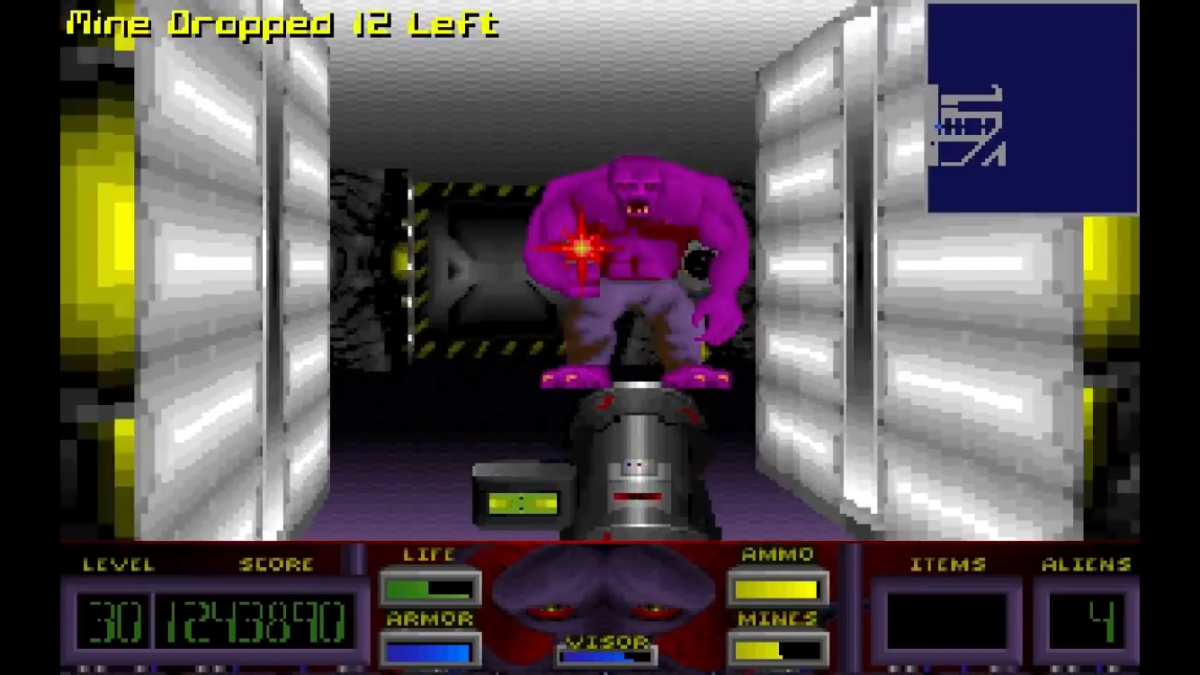
Speaking of favorite enemy designs, the Tymok ranks up there for me. He’s basically Barney on steroids. And unlike the Mechanical Warrior, Tymoks are very strong and worthy of their boss status. I would love to see a Tymok vs. a Baron of Hell battle. Quite frankly, I’d put my money on the Tymok…
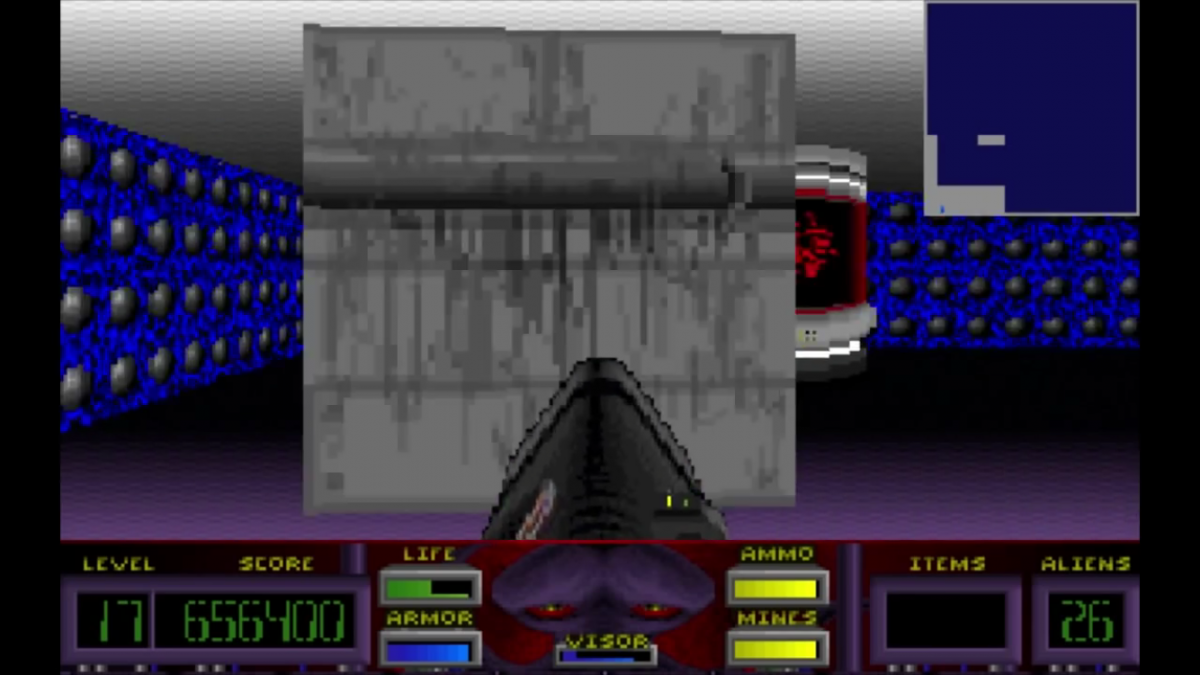
Corridor 7 had a unique color scheme. Sure it has its share of decaying walls, but things like the snazzy blue “energy walls” which animate really caught my eye as a kid. It has a unique colorful look that really appealed to me when I was a kid.
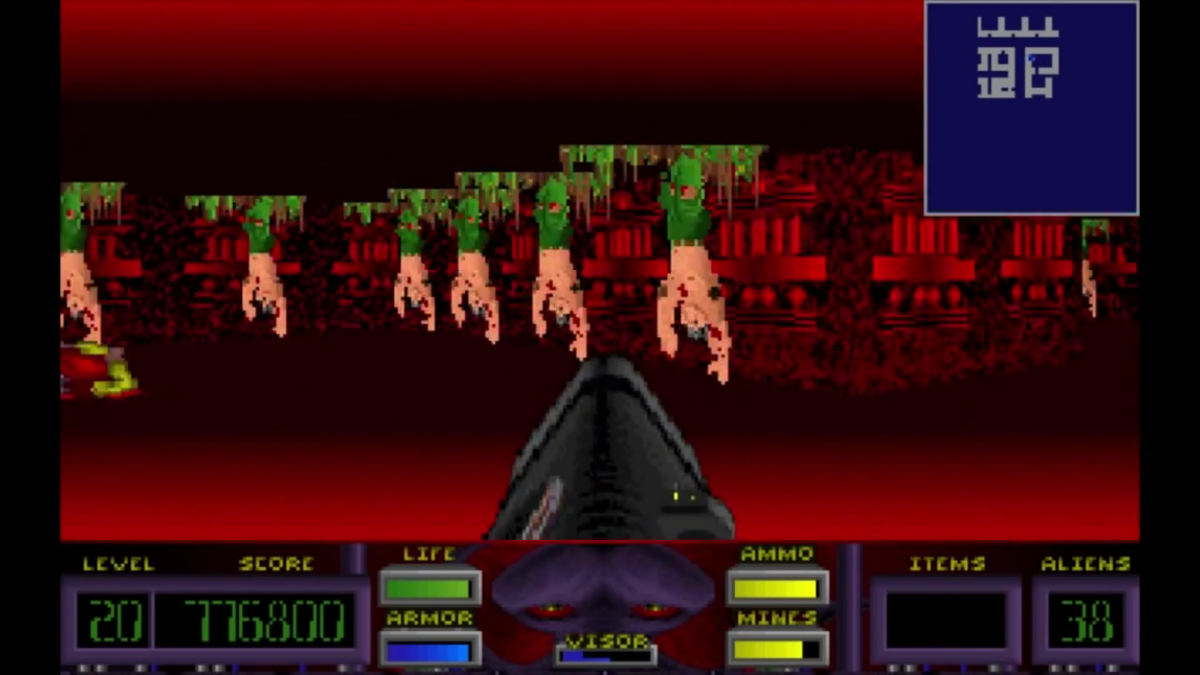
Level 20 sees a major switch. The levels shift over into “alien levels.” This is where the aliens have completely modified their environment to suit their personal needs. I was so creeped out the first time I saw those human bodies hanging upside down. God knows what was have done to them…
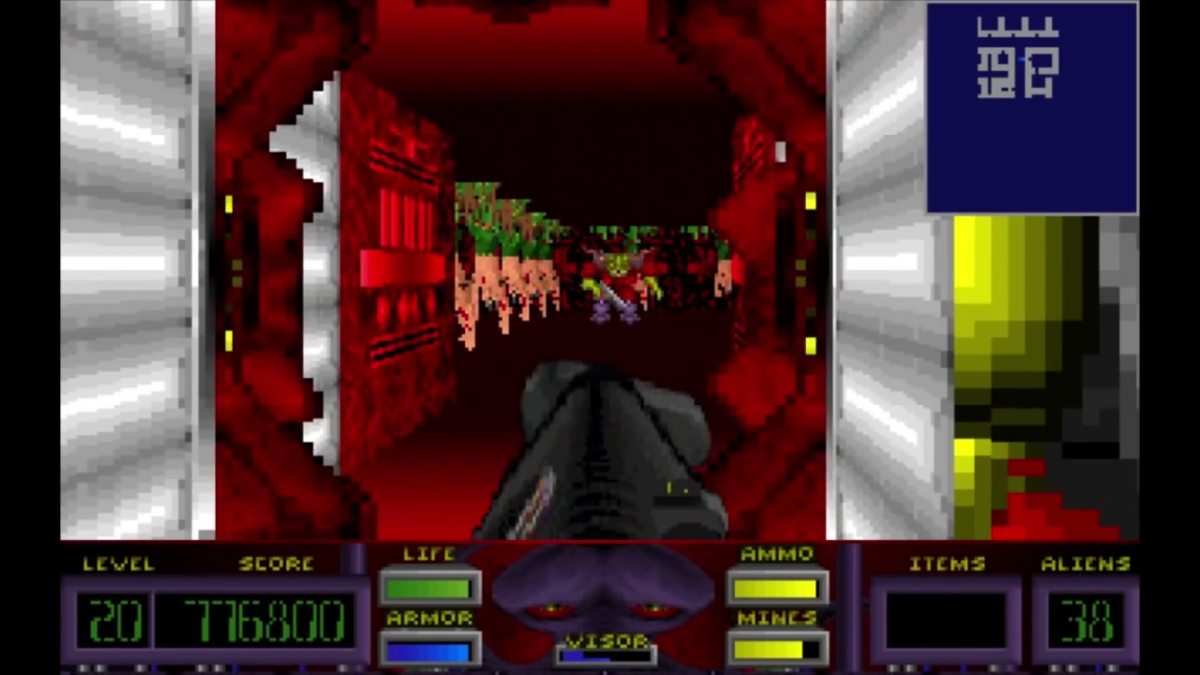
I love how the doors in the alien levels were altered as well. The door designs added to the creepy atmosphere and it was cool how the doors opened as though you were entering a living breathing organism.
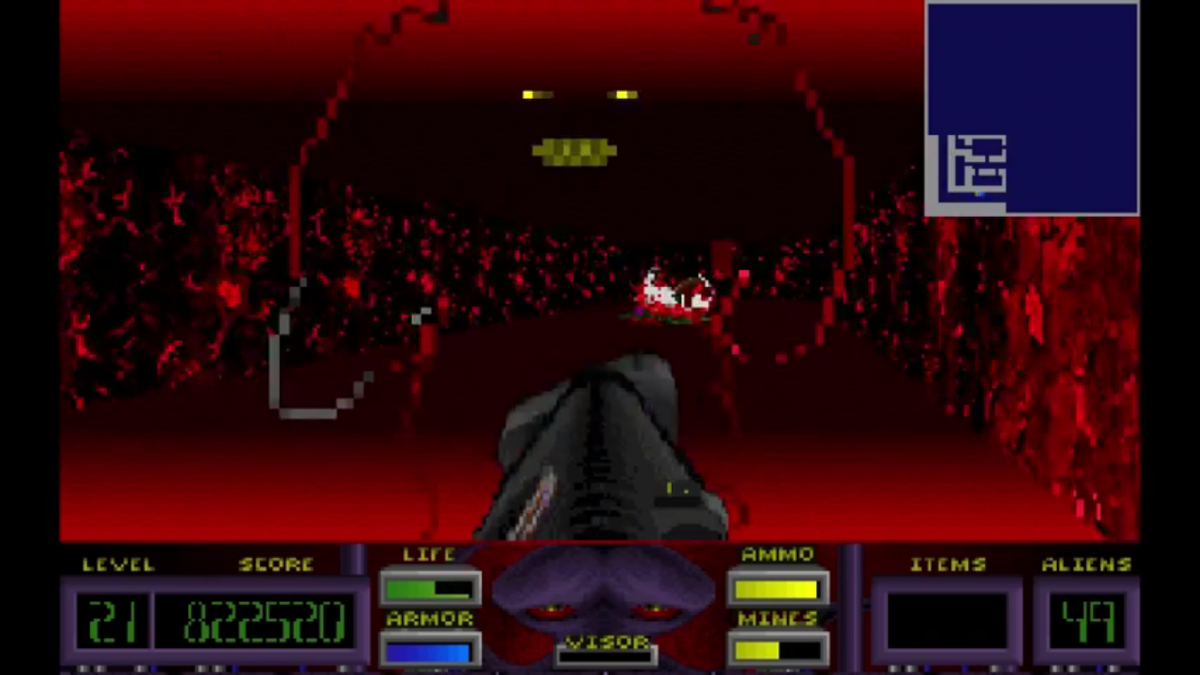
Watch out for the Eniram enemies. They’re invisible, only appearing when they fire at you or when you enable your infrared visor. If you’re out of visor batteries, you’re pretty much screwed unless you have the full proximity map.
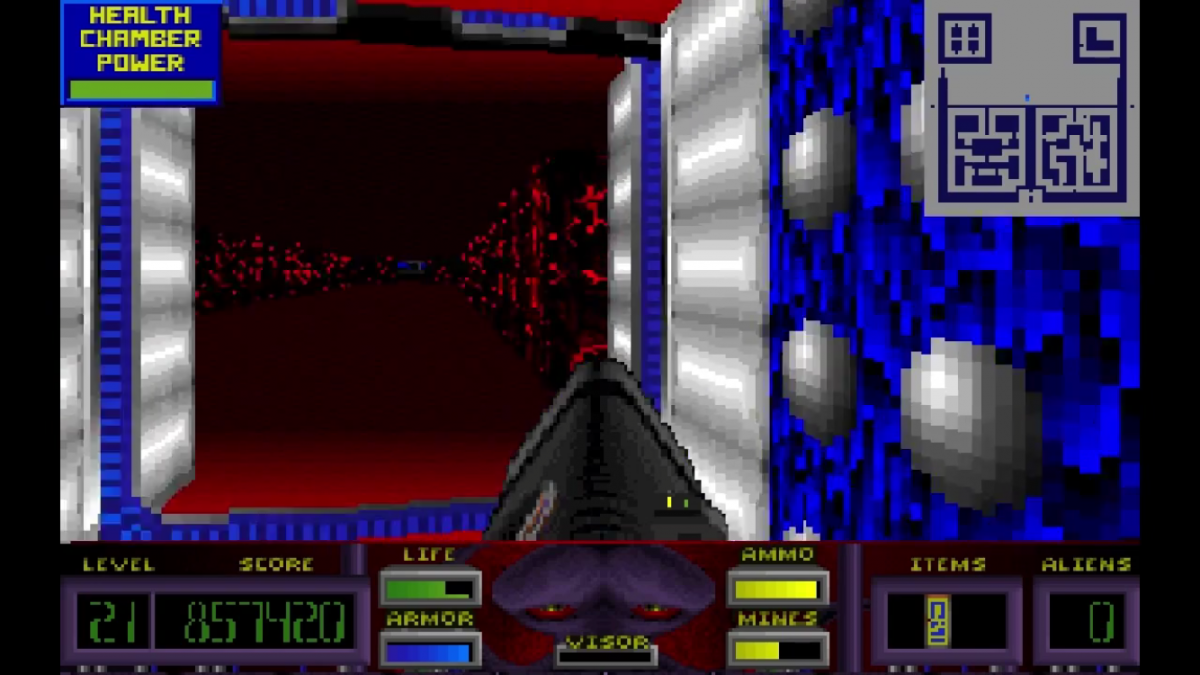
You’ll need them, trust me.
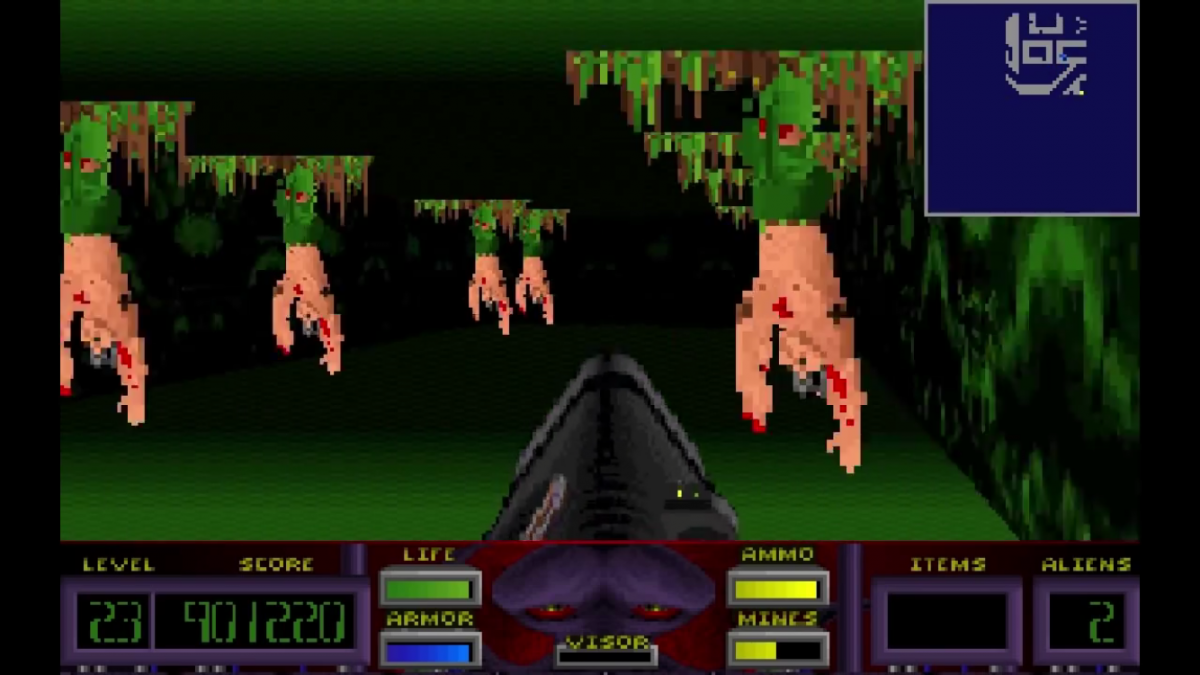
LES BIRD INTERVIEW
The programmer of Corridor 7, Les Bird, was kind enough to take some time out of his busy schedule to answer my questions. This Q&A was conducted on March 23, 2017 — just in time for the 23th anniversary of Corridor 7.
Steve: Thank you for your time, Les. First off, were you a gamer growing up? If so, what were some of your favorite video games or gaming memories?
Les: I’ve been a gamer since I was a kid. I spent most of my time in the arcades playing games like Asteroids, Robotron, Gravitar, Defender, Major Havoc, Pac-Man and more. I was so fascinated by these games that I wanted to make my own so I taught myself how to code. It was always my dream to make games for a living and somehow I got lucky.
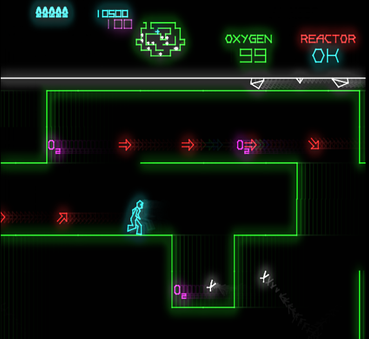
Steve: How did you get into the gaming industry?
Les: I was fortunate enough to get a job in the early ’90s working for Capstone in Miami. Before that I was working for Galacticomm in Fort Lauderdale helping them enhance their MajorBBS multiuser software. On the side I wrote a couple EGA vector graphic games for them called Flash Tanks and Flash Spacewar. It was just by chance that I saw an opportunity with Capstone and I took it. That was my first job in the game industry and I’ve been doing it ever since.
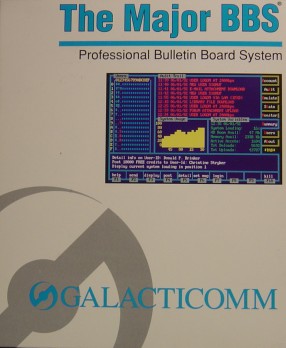
Steve: What inspired you to create Corridor 7?
Les: The inspiration came from playing Wolfenstein 3D. Capstone licensed the Wolfenstein tech from id Software and we needed a cool game to make with the tech. After several brainstorming sessions we came up with the story for Corridor 7. Oddly it was very similar to the story of Doom and later on Half-Life. It seemed all the sci-fi games back then followed a similar story line; a portal opens up and bad guys invade. I actually thought Half-Life was Corridor 7 made with better tech.
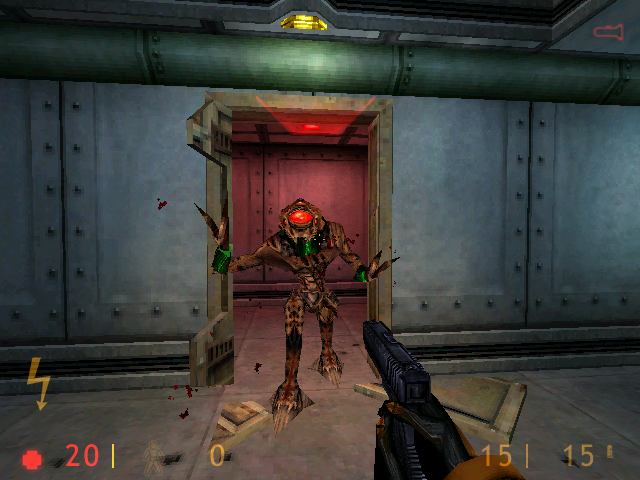
Steve: Talk a bit about acquiring the Wolfenstein engine license from id Software. How much did it cost? And looking back, I suppose id Software was more than happy to lend you the Wolfenstein engine because they were secretly working on Doom which utilized an improved engine.
Les: I wasn’t part of the engine acquisition but I believe id contacted us. As you said they were developing the Doom engine and the Wolfenstein 3D tech was outdated to them so why not license it out? I think, but not sure, the cost was $50,000 per title. Again I’m not totally sure of the details regarding this.
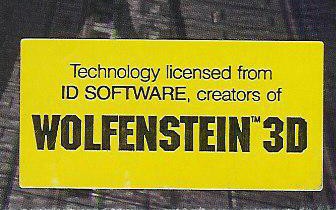
Steve: What were your thoughts when you first played Wolfenstein 3D?
Les: I played Wolfenstein 3D when I was still working at Galacticomm. At the time I was not much of a PC gamer (I had an Amiga) but that game blew my mind. That was the moment I started to commit to the PC as a gaming platform. I remember trying to write my own 3D engine like Wolfenstein 3D. The thing that got me with Wolfenstein was how smooth it ran on a PC. It was one of the first games that could do 3D (or 2.5D I guess they called it) in real time at a smooth frame rate. I remember loading the game up and just turning in a circle and just in awe at how fast it could render the scene. Back then there was nothing like that which is why it was so revolutionary. The other thing that impressed me was how incredibly real the sound was if you had a Sound Blaster audio card. You can imagine how excited I was when we were able to license the Wolfenstein tech to make Corridor 7.
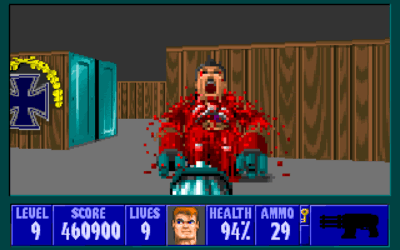
Steve: How long was Corridor 7 in development for? Do you know how many copies were sold?
Les: Corridor 7 was in development for about 9 months and then another 3 (I think) for the CD-ROM version. I spent the early part exploring some engine mods that could differentiate Corridor 7 from the other games. A few things I wanted to do to make Corridor 7 unique were:
(1) Have transparent walls and windows. We also wanted the levels to be alive so we added color cycling to the engine so the electronic equipment can have blinking and moving lights.
(2) All pickups were in the walls (health packs and ammo) instead of scattered about the floor
(3) Health chambers to restore the player to full health
(4) Add diminished lighting when you looked down long hallways
And then there was the visor. That was an idea I had that just came out of the blue. I thought it would be cool, since you play the role of a military soldier, to be able to turn on night vision and see down dark hallways.
We also added the infrared mode to the visor and then created a creature and traps specifically for the new mode.
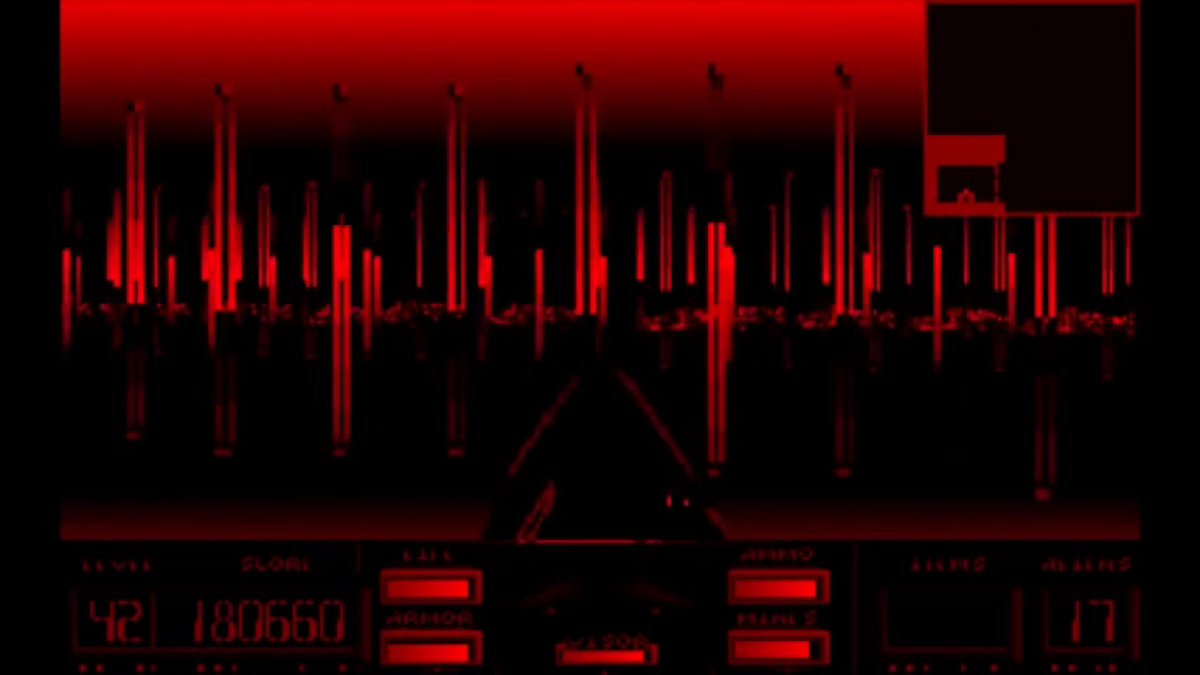
I do not know the exact number of copies sold and if I tried to guess I think I’d be way off. It was included in one of the popular 5ft 10 pack CD bundles and then GameTek also took on publishing the game later on in its life.
Steve: Doom was released December 1993. How far along was Corridor 7 at that developmental point, and how big a factor do you think the new and improved Doom engine hampered the potential success of Corridor 7, which came out March 1994?
Les: Doom blew me away. It definitely hampered sales for our game. All of the game reviews for Corridor 7 were compared to Doom, which wasn’t exactly fair, but Doom was the best game out at the time and set the new standard. One of the multiplayer levels in Corridor 7 was modeled after the first Doom level. Corridor 7 was pretty far along in development when Doom came out. It was too late to turn back and change things so we just had to push forward with what we had. We also added the Alien Disintegrator to the CD version of Corridor 7 which was inspired by Doom’s BFG.
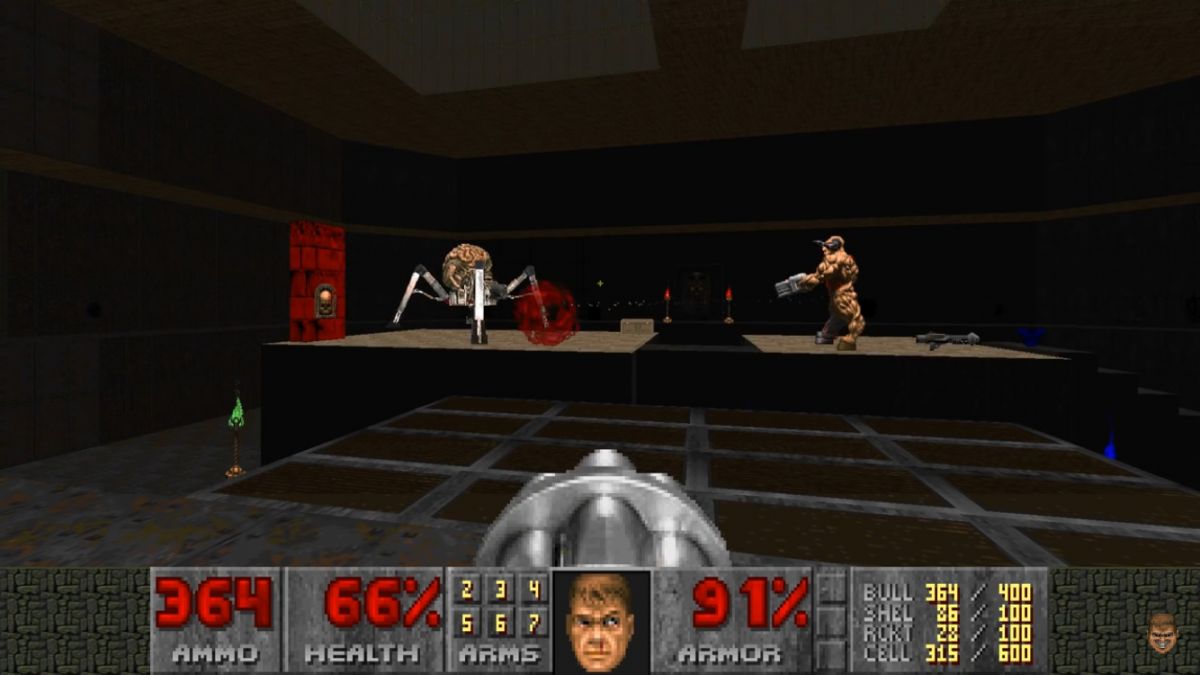
Steve: What were your thoughts when you first played Doom?
Les: Doom blew my mind when I played it. I could not believe games like that were possible on the PC with EGA/VGA graphics. Doom and later on Quake set the standard for FPS games.
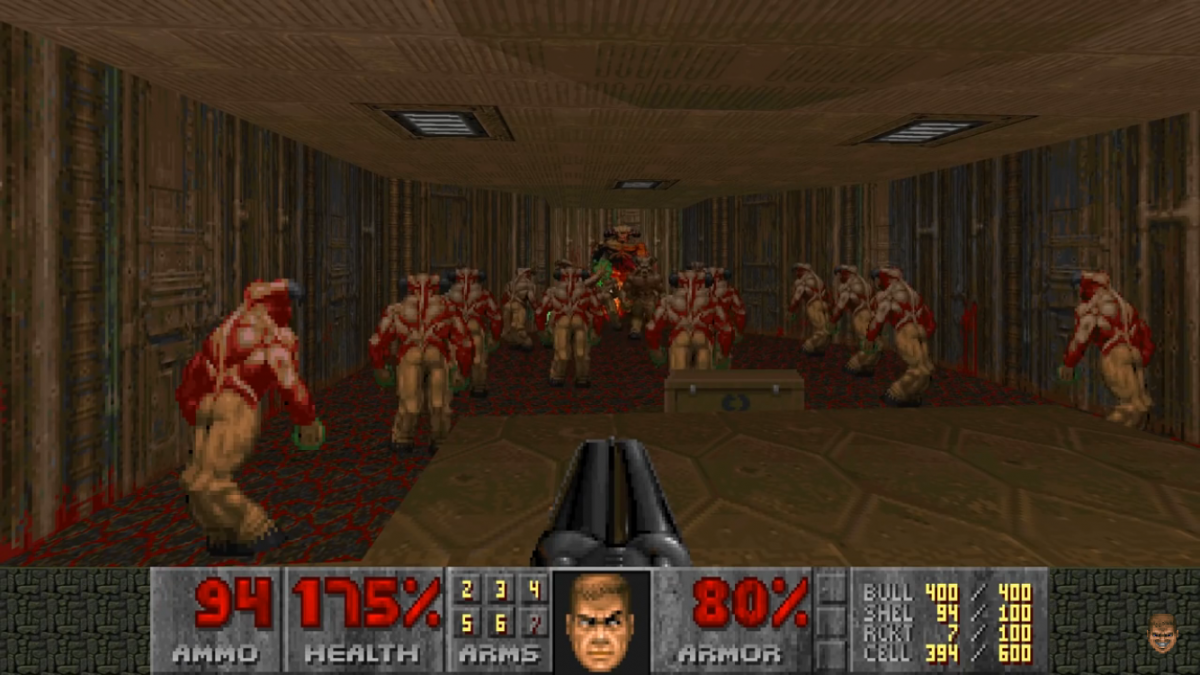
Steve: In the first level of Corridor 7 you see the names of the people who worked on the game. Whose idea was that? I always found it to be endearingly quirky.
Les: That was actually my idea. I even made the sprites for each team member. I stuck them in the back corridor as sort of an Easter egg. There wasn’t much of a problem with management about it. I just thought it’d be cool to show the names of the key members inside the game instead of on a credits screen that may or may not be seen.
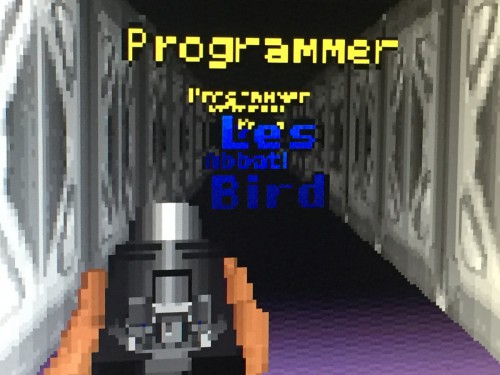
Steve: Speaking of names, some of the enemy names were based upon real names spelled backwards. You had Katie-Eitak, Scott-Ttocs, Carlos-Solrac, James-Semaj and hell, even Marine-Eniram. Who came up with this idea? I always thought it was pretty clever. Reminded me of Dracula-Alucard.
Les: We were trying to come up with names for the aliens but none of them made sense. Someone on the team suggested we just use our names spelled backwards and it stuck. I don’t remember whose idea it was (it wasn’t mine) but we all started calling each other by our alien names. Trying to come up with unique names for aliens is a pretty difficult task.
Steve: The enemies were very underrated I felt. Especially the Bandor, which often disguised itself as everyday furniture. Talk about the designs and where some of your inspirations came from. Was there a particular enemy you’re most fond of? I personally love the Ttocs the most.
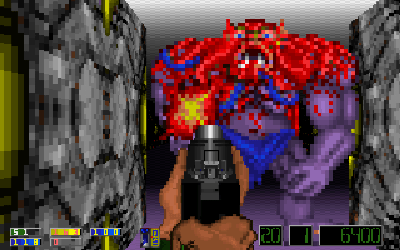
Les: The Bandor was an idea I came up with. I remember playing one of the early levels and there was all this office furniture, file cabinets and chairs, just randomly placed in some of the rooms. I thought, wouldn’t it be cool if aliens could disguise themselves as office furniture and when you entered the room you’d think “nothing here” and then all of a sudden aliens would appear and start shooting you. The team liked the idea and so we made it happen. For a personal favorite, I really liked Solrac. Creepy and spooky with tentacle arms. Ttocs is Scott spelled backwards. Scott was our lead artist who came up with most of the creature designs and did all the pixel art for them.
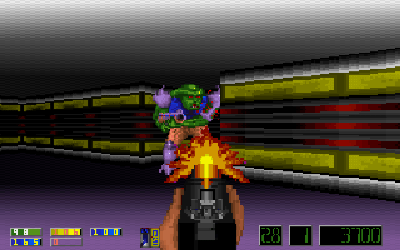
Steve: The aliens had unique sounding screams. I particularly remember the Rodex’s pig-like squeal. How were the alien sound effects made?
Les: All of our sounds were created by our sound engineer. He was actually pretty good at coming up with unique sounds. He also did the jump scare sound for the boss vision (messiah) that you get randomly when playing the game. We basically explained what we were doing and then a day later he’d come back with some awesome sound effects. I don’t remember his technique for creating the alien sounds but I agree, they were all unique and turned out pretty well.
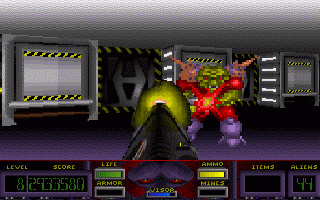
Steve: The CD-ROM version had extra goodies (i.e. 10 more levels, new enemies, new weapons, etc.) Talk about working on that.
Les: We had to make some new art for the CD-ROM version for the pulsating alien wall textures. We also had to think up some new weapons to add. Reluctantly I gave in to allowing ammo and health to be scattered on the floor. We couldn’t think of a good logical solution since the military wall textures were now alien wall textures so we couldn’t have ammo and health packs integrated into the walls.
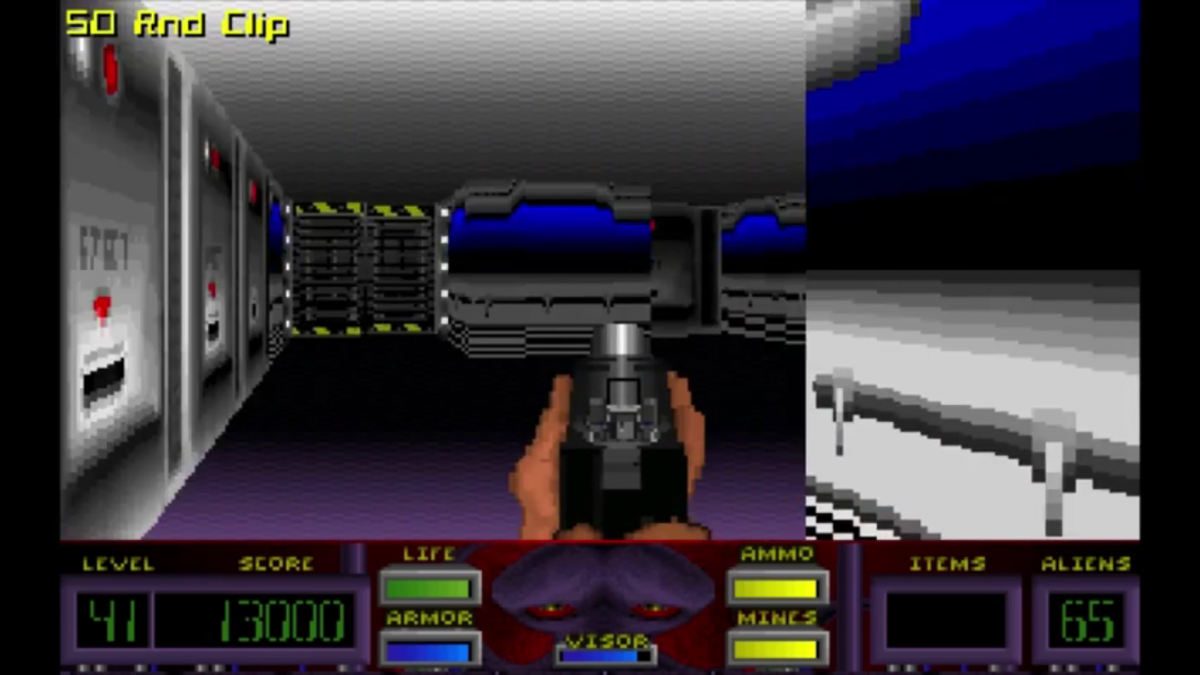
We also added network and modem multiplayer support. I had to learn a lot about IPX networking as it was an area I had not explored before. We also added the movie sequences to the CD-ROM version. We were already at practically max memory limits (640K) so I had to learn how to use EMS/XMS memory to cache the video frames from the movies. I also remember us having a really difficult time mastering the final CD-ROM. Something about the mastering software not working properly because we needed a PC that was fast enough to stream from the hard drive to the CD-ROM burner. Back then this was all new stuff so there was a lot to learn. We went through 10 or so blank CDs before finally making a gold master that worked.
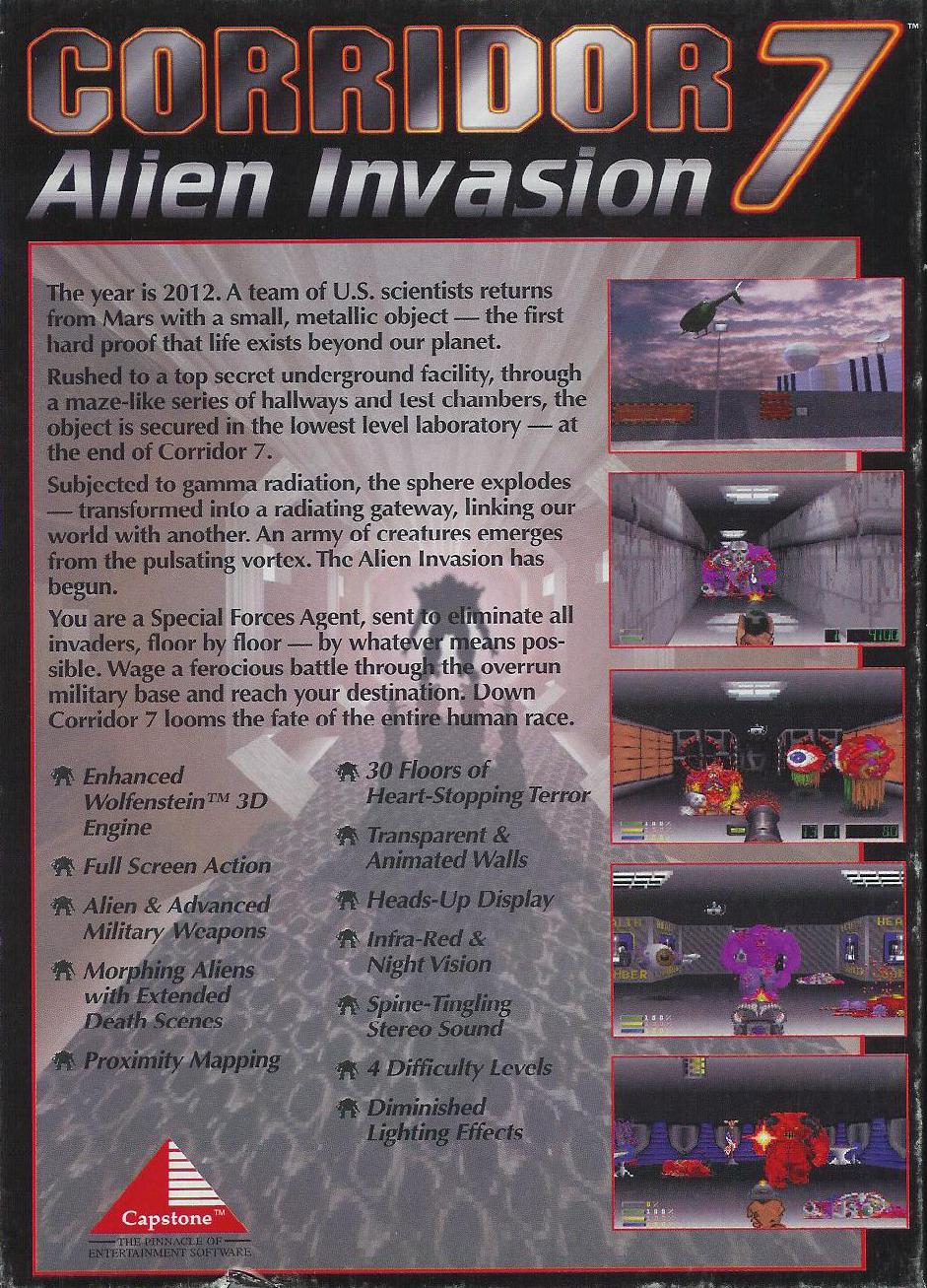
Steve: How was Corridor 7 perceived when it came out in 1994? Were you pleased with the end results yourself? What would you have done differently, looking back?
Les: I was actually very happy with the game. I had a ton of freedom to put whatever I wanted to put into the game. These days things are way different. Programmers write code and designers design the games but back then it was mostly just making things up as you went. The invisible Eniram for example was just a spur of the moment thing when we came up with the infrared visor feature and we were trying to think of what else you could use the infrared mode for.
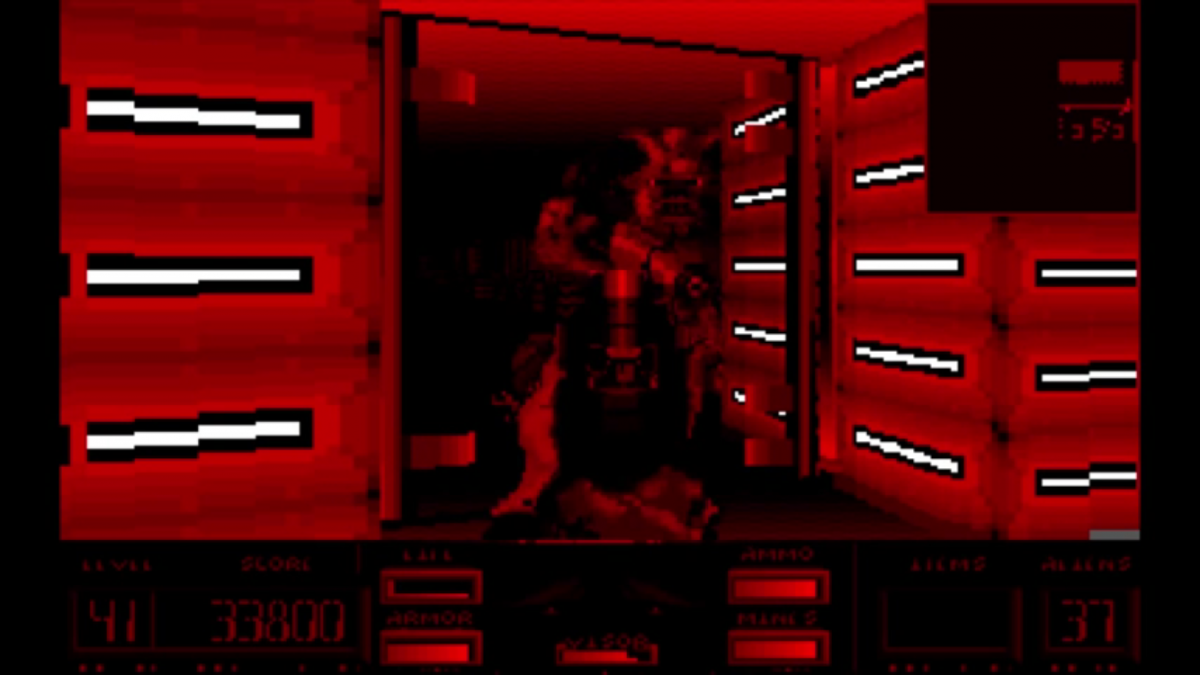
The proximity mines, again, just came up as we were in the middle of the project. They started out when I was trying to figure out a way you could mark where you were as you explored a level. I made these little flags that you could drop by pressing a key and then you’d know you’ve been to that area before. I showed the team but no one really liked it. I was about to remove the feature but one of my artists came up with the idea of turning the flags into mines. That was an AHA moment. He made the art for the pickup crate and the mines and I made them explode when something approached them.
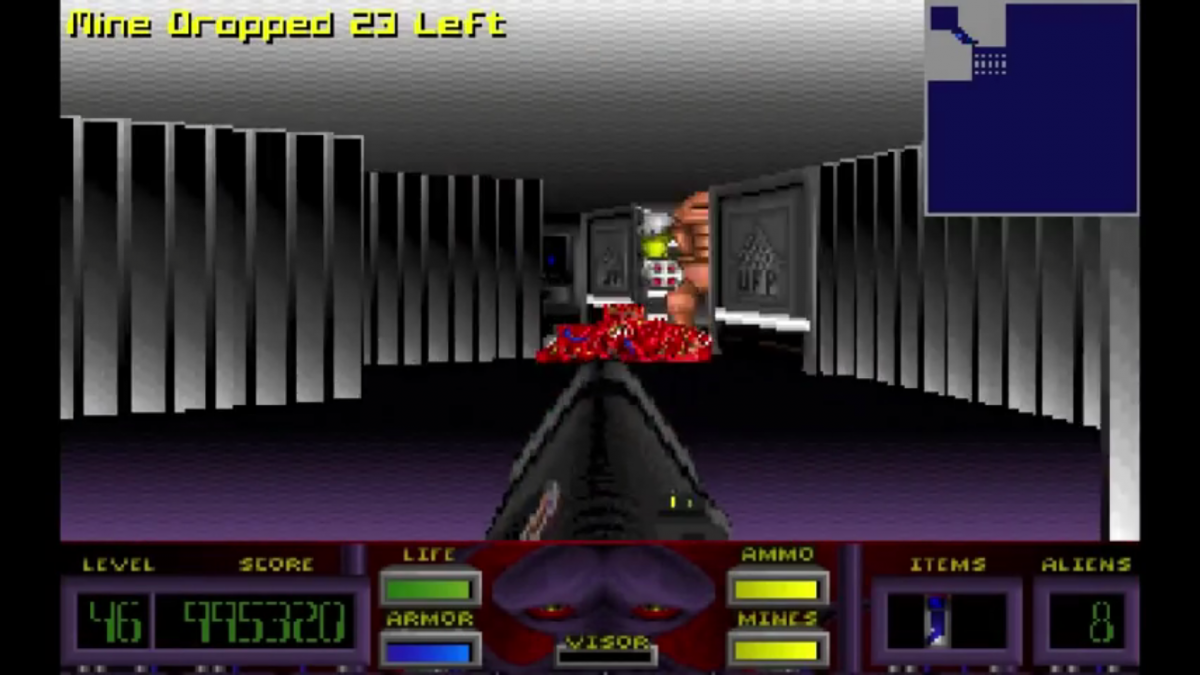
 Looking back I think one thing I would’ve changed was to have more health chambers. I’m not sure what happened there but somewhere along the way it seems like we forgot we had them when we were building out the levels. We split up all the levels between several people and maybe some of them didn’t know how to add the health chambers, not sure.
Looking back I think one thing I would’ve changed was to have more health chambers. I’m not sure what happened there but somewhere along the way it seems like we forgot we had them when we were building out the levels. We split up all the levels between several people and maybe some of them didn’t know how to add the health chambers, not sure.
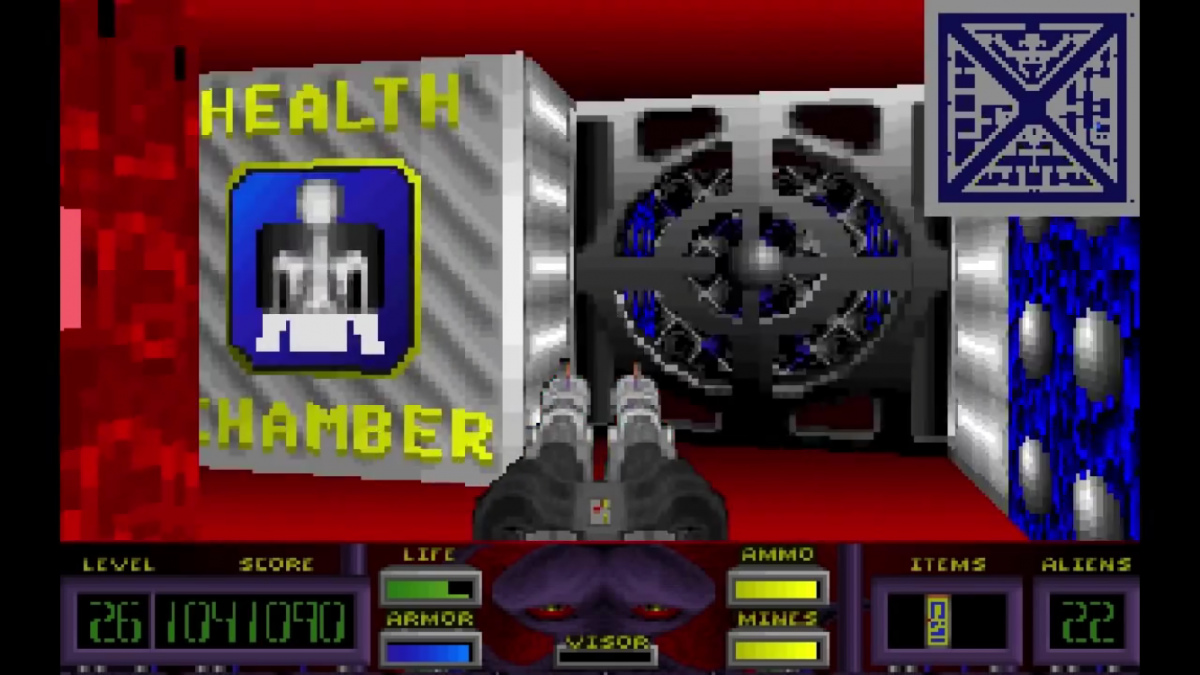
Steve: I have to ask about the random Solrac “coming at you out of nowhere” moments — where did that come from? It creeped me out so much as a kid! It was awesome ![]()
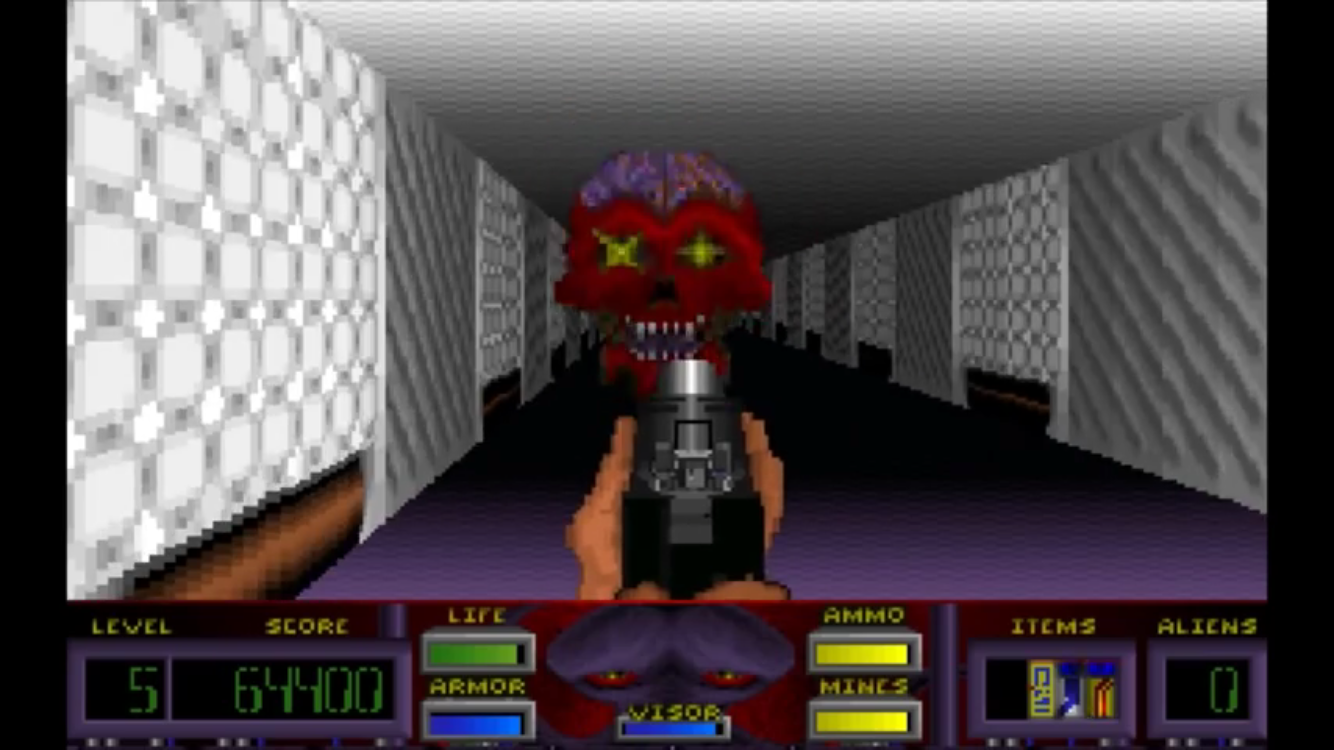
Les: Oh man, the “messiah” as he was known internally. So this is an interesting story. It started out when one of our programmers said that we should add a random encounter with Elvis as you play through the game. He even created programmer art of an Elvis head that we put in the game. Later on we thought, maybe it should be a religious experience so we made art of Jesus with a crown of thorns and our audio guy made the jump audio for it. Our producer took the game home and played it that night and came in the next morning and called us all into her office. We got a major chewing out about it. She said “Les, tell me I didn’t see Jesus when I was playing the game last night.” We all kind of laughed but she didn’t think it was very funny (and in reality it wasn’t very funny). She immediately ordered it out of the game. We all thought it worked really well as a jump scare so we convinced her to let us keep it if we changed the art to the final boss character. She agreed and that’s how it came to be. I have to say that even when I play the game today I jump every time it appears. I’ve spent so many rounds of ammo shooting into thin air because of it.
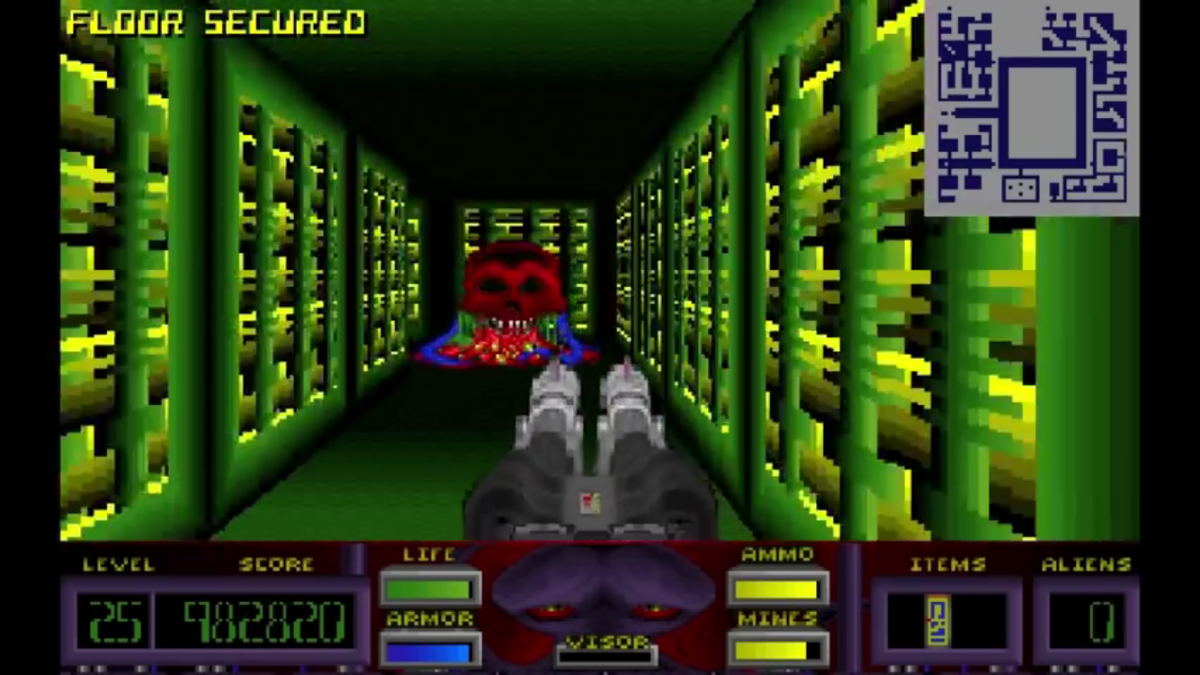
Steve: Talk a little about the Corridor 8 project and how it wasn’t meant to be. Might we see Corridor 7 remade or revitalized in some way one day? Or has that ship sailed for good?
Les: Capstone was struggling to stay alive. At the time they were trying to take the company public and they put every penny they had into making this happen. They needed a game that would save them so we came up with a sequel to Corridor 7. I personally wanted to call it Corridor 7: Alien Invasion II, because Corridor 7 was already a known brand but the designer rejected that idea and wanted to call it Corridor 8. We were using the Build engine, same tech that we made Witchaven, Witchaven II and TekWar with and the same tech that was used to make the original Duke Nukem 3D game.
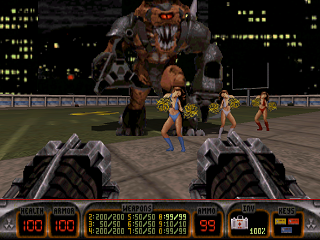
 We were in the very early prototyping stage when Capstone could no longer fund it. We were experimenting with vehicles, alien AI and weapons at the time and had some designs for some of the levels. The team was only 3 people at the time, just me and 2 artists. As for a Corridor 7 remake, I’ve been tossing around this idea for quite some time. I’ve explored some ideas for remaking it but it’s difficult to find the time to do that now. At one point I had it running on an iPad using DosBox for iPad, I think I posted a video on my YouTube channel of this. I’d definitely be interested in revisiting this some day when I have the time.
We were in the very early prototyping stage when Capstone could no longer fund it. We were experimenting with vehicles, alien AI and weapons at the time and had some designs for some of the levels. The team was only 3 people at the time, just me and 2 artists. As for a Corridor 7 remake, I’ve been tossing around this idea for quite some time. I’ve explored some ideas for remaking it but it’s difficult to find the time to do that now. At one point I had it running on an iPad using DosBox for iPad, I think I posted a video on my YouTube channel of this. I’d definitely be interested in revisiting this some day when I have the time.
Steve: Let’s briefly switch gears to another game of yours: Operation Body Count. Talk about your specific role on Operation Body Count, the inspiration for this game, development time, and your general thoughts.
Les: Operation Body Count was our second Wolfenstein 3D engine game. My role on this game was very minimal except to support it because it used the same engine with the same mods as Corridor 7. When production started on this game I was finishing up the CD-ROM version of Corridor 7. I recall being part of the initial design team and we were all trying to think up a name for the game. I don’t remember who came up with the name but everyone agreed that it was the most fitting. I had mixed feelings towards the game. Development time was around 6 to 9 months I believe.
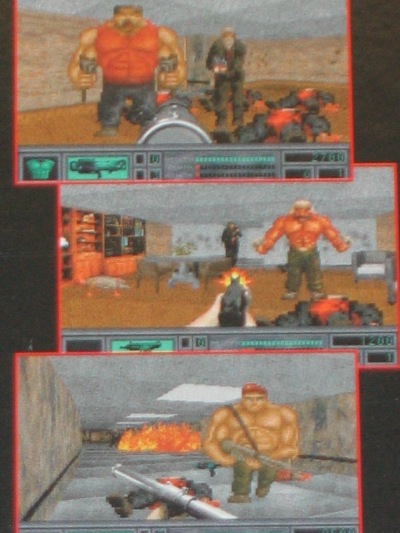
Steve: I had the one level preview for OBC and absolutely loved it. Spraying bullet holes into the walls, shattering glass, bodies twitching for a second after dying, bazookas blowing up toilets, setting enemies on fire which can kill others… I thought it had the potential to be great. But then I bought the full game. I was turned off at how the first 10 or so levels took place in the sewer. Was it just to increase the length of the game? The one level preview was loads of fun. The actual full game, sorry to say, not so much.
Les: I totally agree with you. I think the first 10 sewer levels were put in to increase the length of the game. I always hated games that had sewers where you had to shoot rats and critters. Never could understand the logic behind that and never understood how that made any game more fun. The one level preview showed off all the best parts.
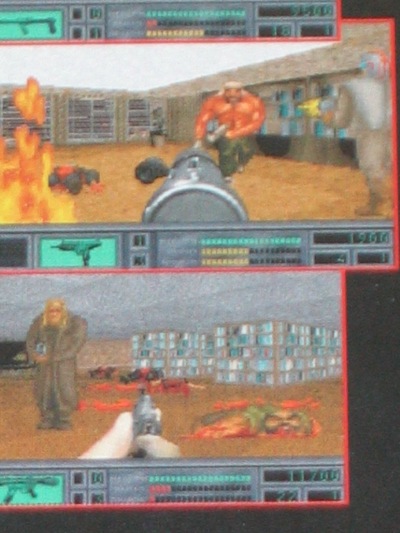
Steve: Thanks again for your time, Les. And thank you for making Corridor 7. It was one of my childhood favorites. Any projects or anything you’d like to plug? Or any closing remarks?
Les: I actually still think Corridor 7 is one of my best works. I think back about how much fun it was to make and how much freedom I had to just put whatever I thought would be cool into the game. I also really liked how we would all just randomly come up with ideas and then just make it happen. The eye probe for example was an alien that one of our artists made one day and he showed it to me and I said “Man that is awesome! Let’s put it in.”
![[EYE SEE WAT YOU DID DERE... -Ed.]](http://rvgfanatic.com/wordpress/wp-content/uploads/2017/03/NewCorr7j.png)
CLOSING THOUGHTS
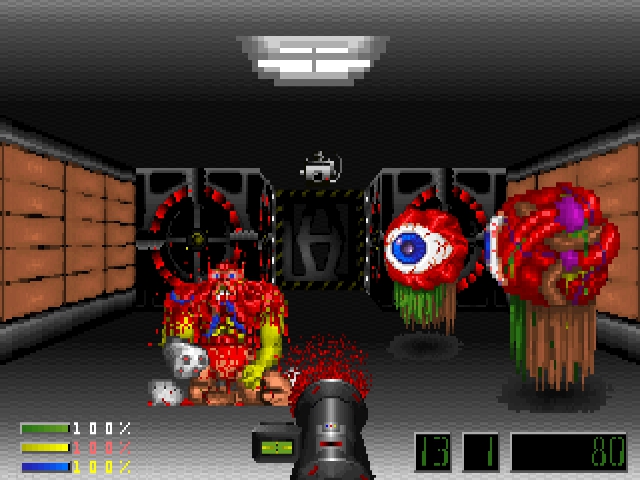
Corridor 7 has a lot of good things going for it. Some killer alien designs, lots of color, military and alien guns with differentiated ammo for both types, some sweet death animations and sound effects, health chambers, land mines, enough varied guns to keep one pleased and so forth. There’s also a visor system where you can switch to night or infrared. The night vision however is fairly useless as it’s not really implemented much. The infrared will help you spot a certain enemy that is invisible and you can figure out which computer panels contain the security code. However, its March 1994 release really hurt its chances of leaving a truly favorable impression. Doom was already out three months by then and Corridor 7 felt a bit outdated upon its release. It’s a shame, because had Capstone put out this game a year earlier, March 1993, there’s no telling what its legacy today might have been. It’s a perfectly playable and solid Wolfenstein 3D clone set in an alien world. If that appeals to you, you’ll probably enjoy Corridor 7. Just watch out for that creepy Solrac jump scare!
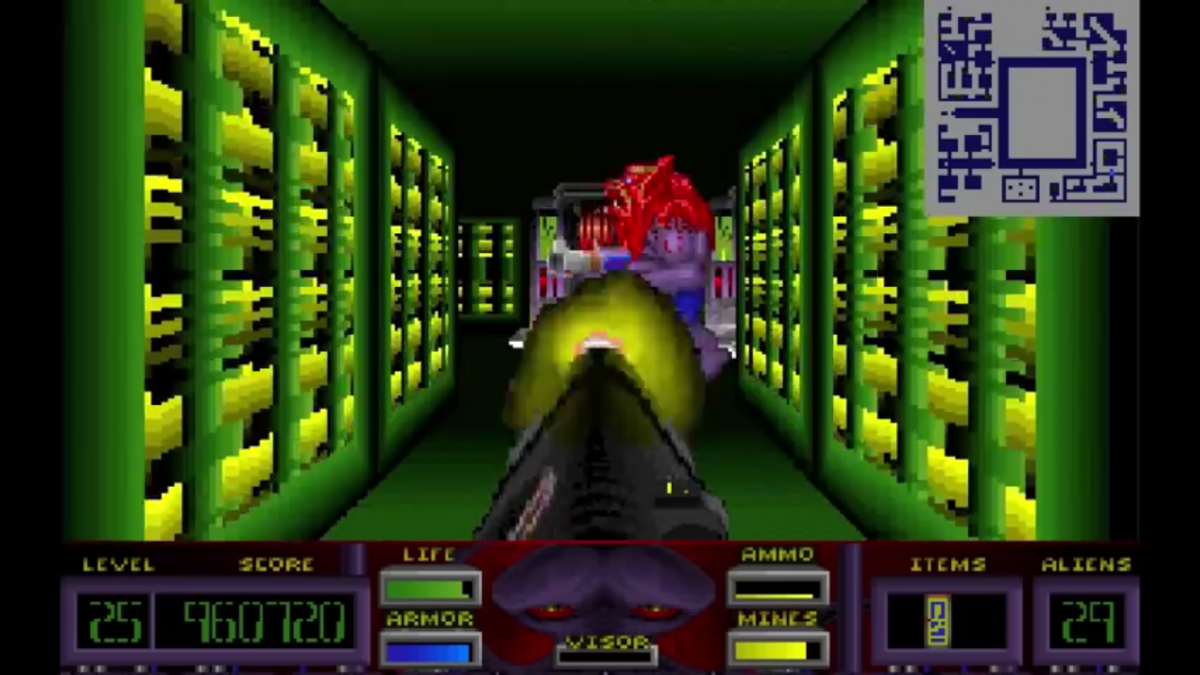
Sure it’s got its flaws. But Corridor 7 will always have a soft spot in my gaming heart. It’s a relic from the good old days of PC gaming. A time in which Wolfenstein and Doom clones were churned out seemingly every other month. There were a lot of bad ones, but there were enough decent ones to sink your teeth into. I’d say Corridor 7 falls into the latter more than it does the former. Although the game is dated, it’s a childhood favorite and a reminder of a simpler time in my life. Playing first person shooters late on Friday nights after a long school week, trying to save the world from Nazis, demons and aliens. It was a good time to be a gamer, and an even better time to be a kid.
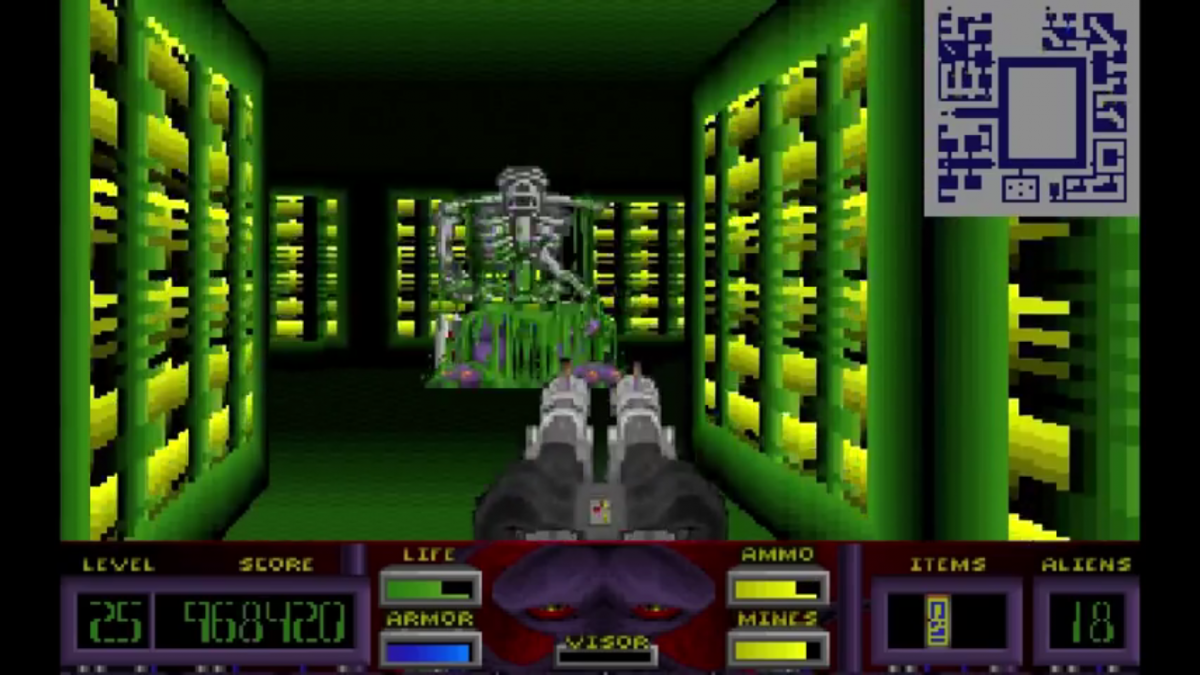
Nice review of Capstone’s shooters!
SPECIAL THANKS:
Les Bird, programmer of Corridor 7
This old Corridor 7 fanpage for the GIFs

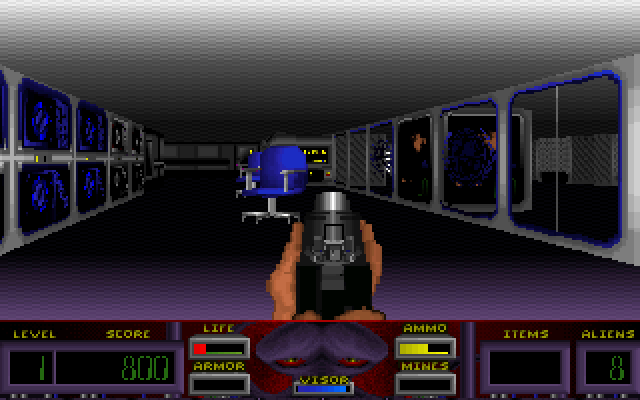
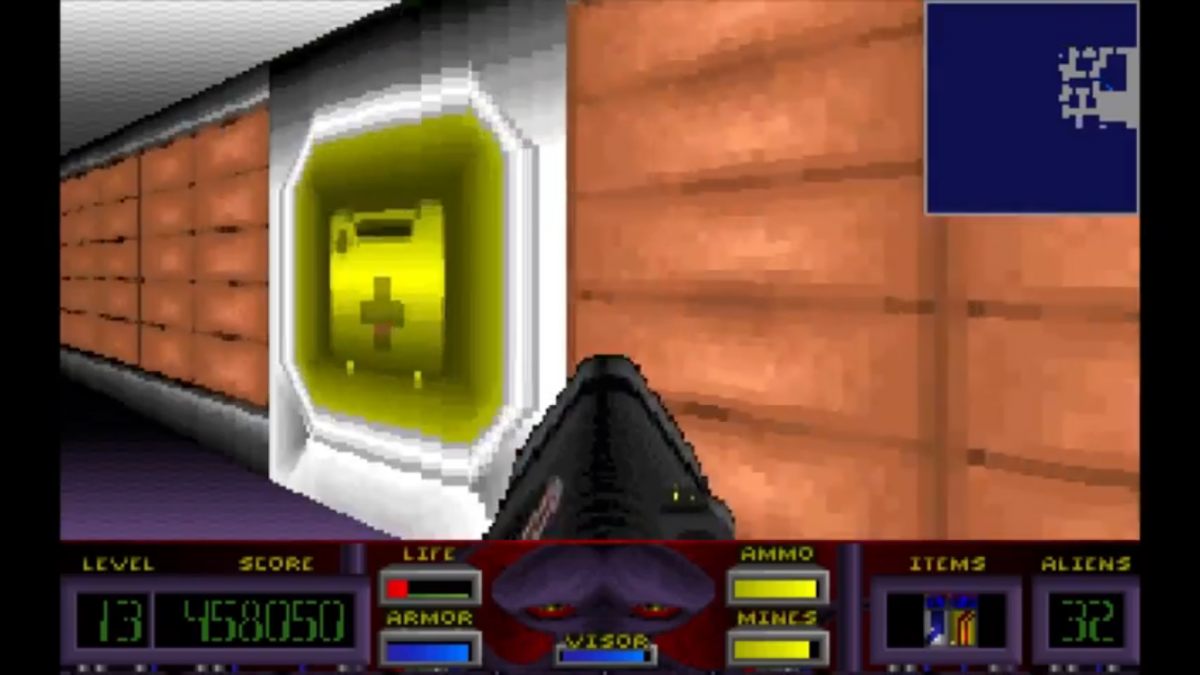
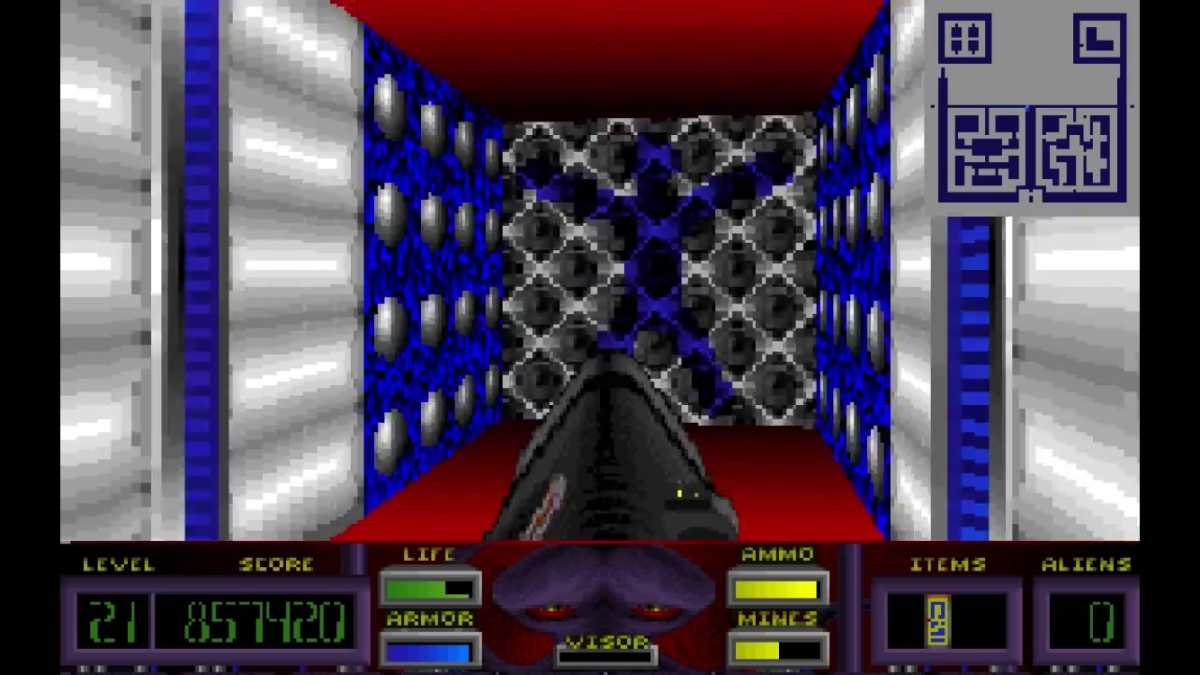
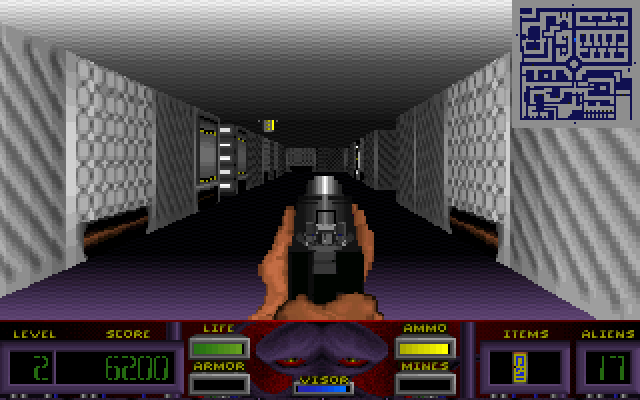
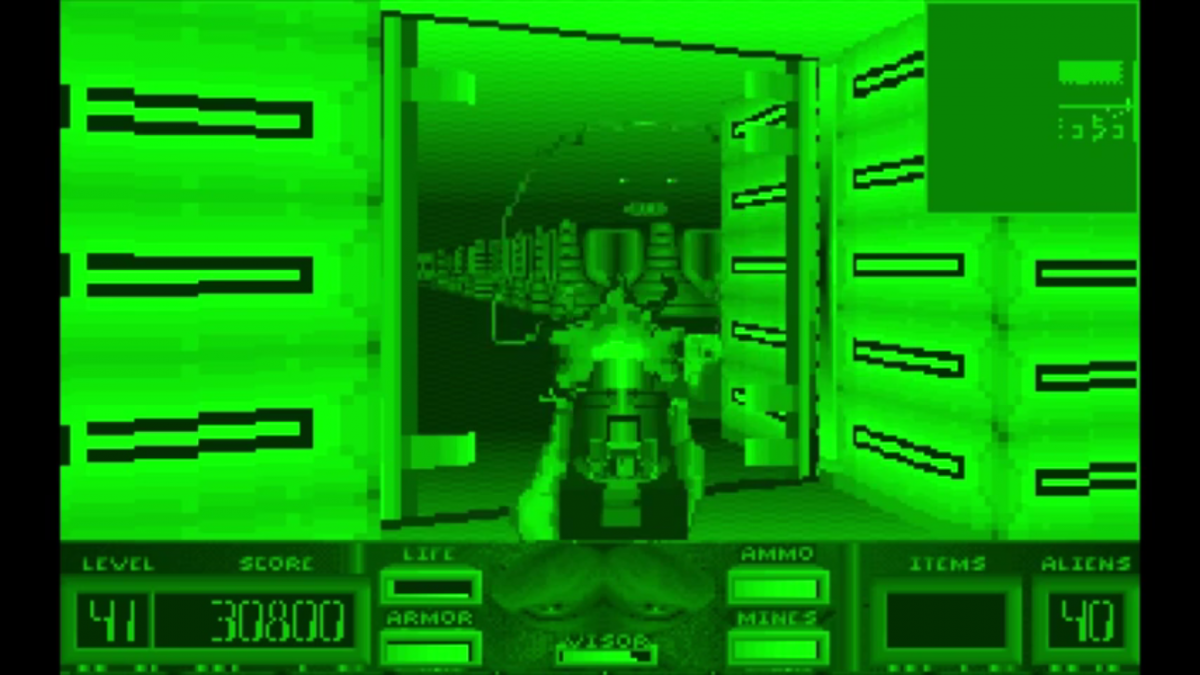
This was a really great write up and it was interesting hearing from one of the guys from Capstone during that period when they were trying hard to break into the growing FPS scene. Thanks for putting it together.
Personally the Blake Stone games are my sci-fi Wolf 3D of choice but I think people often give Corridor 7 a harder time than it deserves. It’s a little clunky and unpolished but it’s well ahead of many other Wolf 3D and Doom clones of its day, including its own followup Operation Body Count as discussed here. It’s easily Capstone’s best FPS effort which I know isn’t saying much.
As someone with a lot of warm, fuzzy feelings for this period of gaming I really like Corridor 7. It’s not a masterpiece but it’s fun.
Hey Green,
I couldn’t agree more. Corridor 7 to me sort of typifies that classic early-mid ’90s era where Wolfenstein and Doom clones were being pumped out left and right. As you said, it’s a bit clunky and unpolished, but there is some heart in the effort and it’s something of a guilty pleasure for me for sure. It was an honor for me to be able to conduct a Q&A with Les Bird, the programmer of Corridor 7. His insights took me back to a precious bygone era. It’s always fun to hear from the people responsible for some of our childhood games!
Although I didn’t list a final review score in my review, I’d rate Corridor 7 somewhere between a 6 and 7, depending on my mood. I think that’s a fair score for a somewhat competent game that was hampered by its fair share of flaws but (as you said) is still fun regardless.
I want to note for the blogger that Corridor 7 and Operation Body Count are now on sale on GOG.com, I even let Les know about it.
Thank you Kane for sharing that info. I’ll take a look!
Loved the interview. Les Bird is such a nice guy, always replied my e-mails. Still hoping that he eventually finds the long lost source code. Corridor 7 and Operation Body count do need modern source ports and their reverse engineering attempts are moving too slow.
Hello Filipe! Thank you for your comment. Apologies it took me so long to finally read and reply. Les Bird was an absolute joy to interview! Funny… recently late late at night I was randomly looking up Corridor 7 retrospective videos on YouTube. Didn’t find too many but watched a few reviews. Fun callback to my childhood during the mid ’90s and the peak of the Doom clone era. Fun times!